Isaiah
AGE:
17 years-old
LOCATION:
Kampala, Uganda
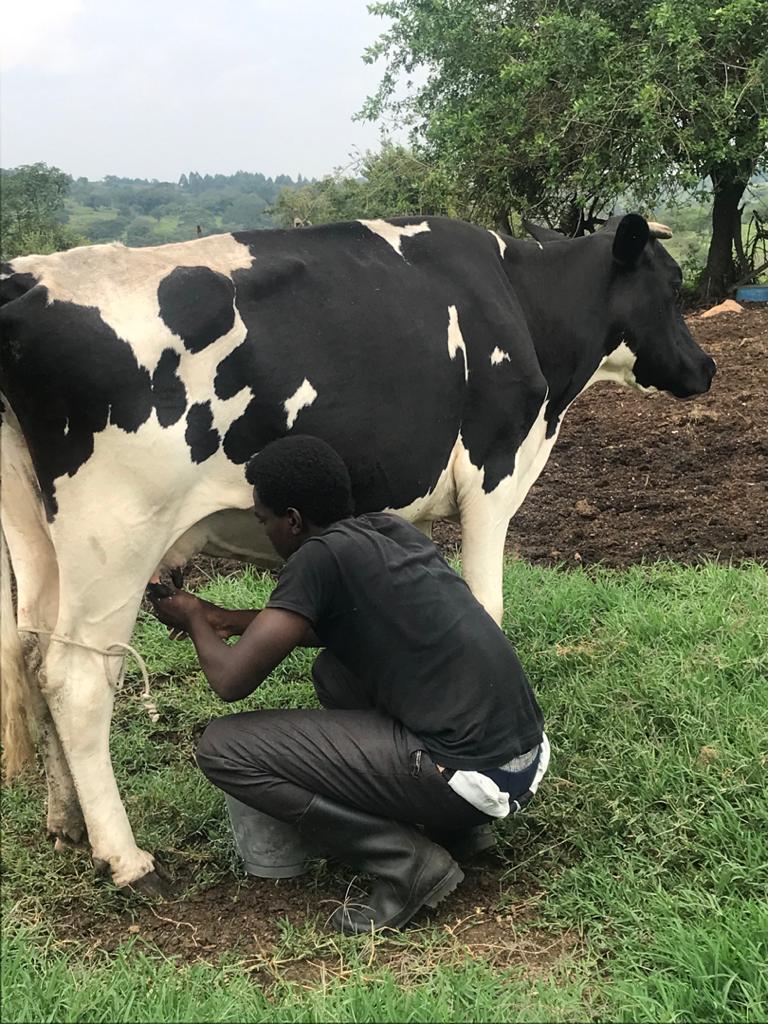
Photo provided by Isaiah.
My name is Isaiah Mutungi Igumira. I would never have learned how to milk a cow if there was no quarantining. I was always in school and never had time for country life. If not for the quarantine, I would have already begun university, which is MUN Canada, but I cannot travel because of Covid travel restrictions.
QUESTION
Isaiah unexpectedly has learned to milk a cow. What new skill sets have you developed because of the pandemic?


The Bigger Picture
Uganda is a landlocked country in Africa’s Great Lakes region. Kampala is the capital city and the country is home to over 46 million people. The Ugandan government first announced restrictions on public gatherings and enforced a lockdown on March 18. The borders were officially closed on March 23rd (only cargo was allowed), and by the end of March, Uganda adopted a nationwide curfew. The government had taken steps to distribute food packages that included posho (made from maize), beans, and salt, amongst other things, in order to sustain its people during the lockdown period. However, these efforts by the government were criticized for a lack of organization. Transportation has been limited and so the food aid was not all delivered at once, frustrating those individuals who had to wait for the rest to arrive. As the pandemic has continued throughout the summer, enforcement of government restrictions and limitations have waned. The passenger limit in public transport vehicles is being ignored according to riders, and social distancing is being overlooked. As a natural outcome of looser measures, the COVID-19 cases have begun to rise as of September 7th, 2020.
QUESTION
Do you think government food distribution would work in your neighborhood or community?
Charlotte
AGE:
11th grade
LOCATION:
Paris, France
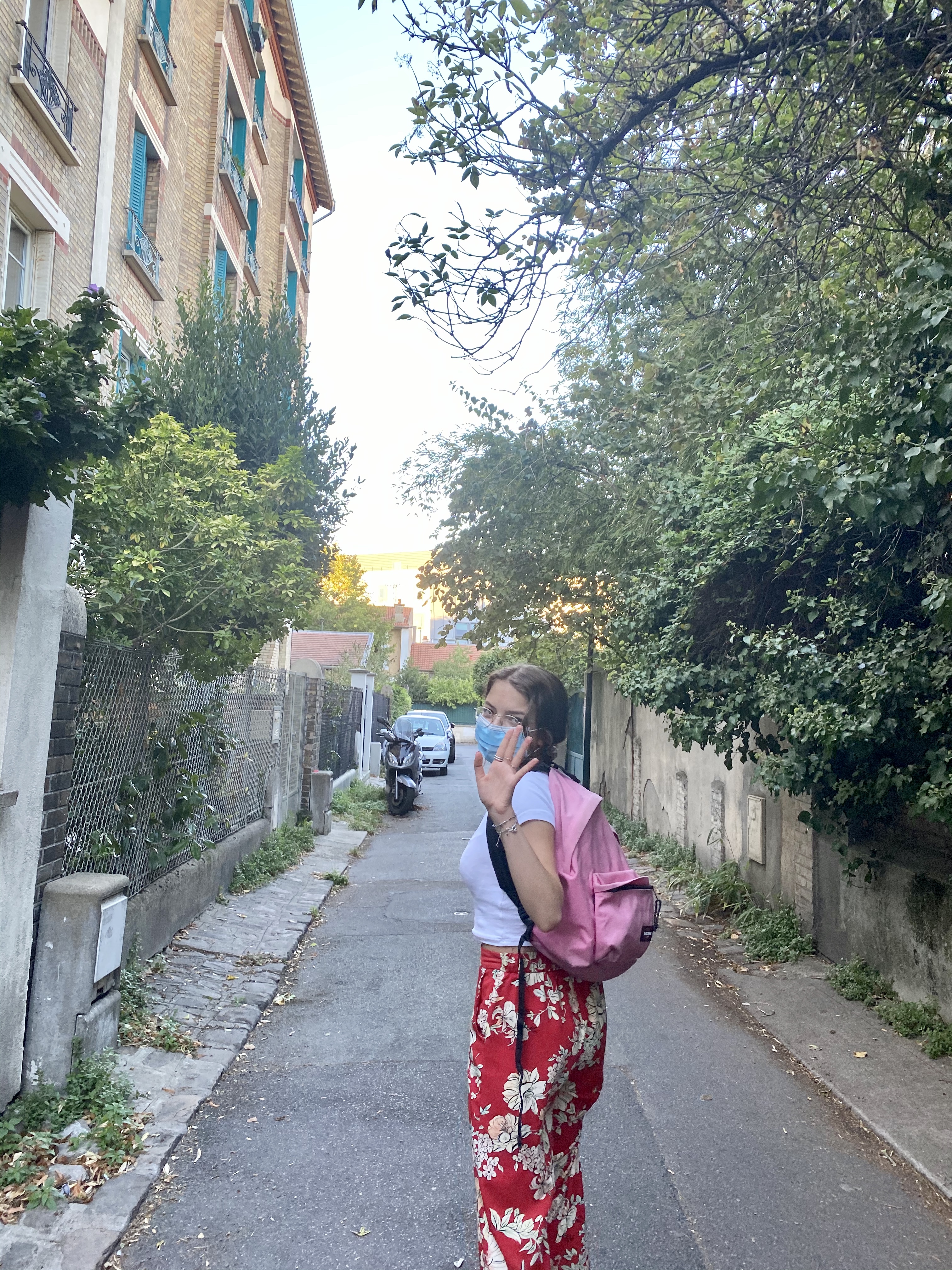
Caption: #newnormal #onmywaytoschool — Photo provided by Charlotte.
Today, Thursday the 3rd of September, was my first day back to school since the beginning of the pandemic. I never would have thought that I would spend my junior year of high school wearing a face mask all day! Although France is no longer quarantined, there are still many preventive measures in place to try to prevent the spread of the virus. In Paris, where I live, masks are compulsory in all public spaces, even when walking in the streets. We have to adjust to this new ‘normal’ and get used to spending our days with face masks on which is not going to be easy: I am in school from 8am to 5pm every day of the week! However, it is nice to somewhat get back to ‘what life used to be’ after six months out of school. Although it will probably be challenging to adjust at first, I am looking forward to this new school year!
QUESTION
Do you remember what you were thinking about on your first day of school this year? Did you walk to school or was school in a virtual room?


The Bigger Picture
Located in western Europe, France has a population of over 65 million people. On September 3rd, twelve million pupils in France returned to class as part of the annual rentrée. It looked different this year, however, as all students older than 11 were required to wear masks. Gatherings of more than ten people are still banned in France, but schools are increasing virus testing in the hopes that it will minimize the risks for students. No online option was offered for public schools. A group of medical professionals suggested that the mandatory mask rule be applied to children aged six and above; the presence of unmasked 6-11 year olds at school provoked concern. Parents and teachers have expressed their anxiety as infections have increased, but school attendance is mandatory for students six years and older or parents risk being fined. By the end of the first week of school, new COVID cases had forced twenty-two schools to close and around 130 classes had been cancelled as of September 5th, 2020.
QUESTION
What do you believe is the best and safest strategy for reopening schools or keeping schools open in your community?
Uma
AGE:
17 years-old
LOCATION:
Winter Park, Florida, USA
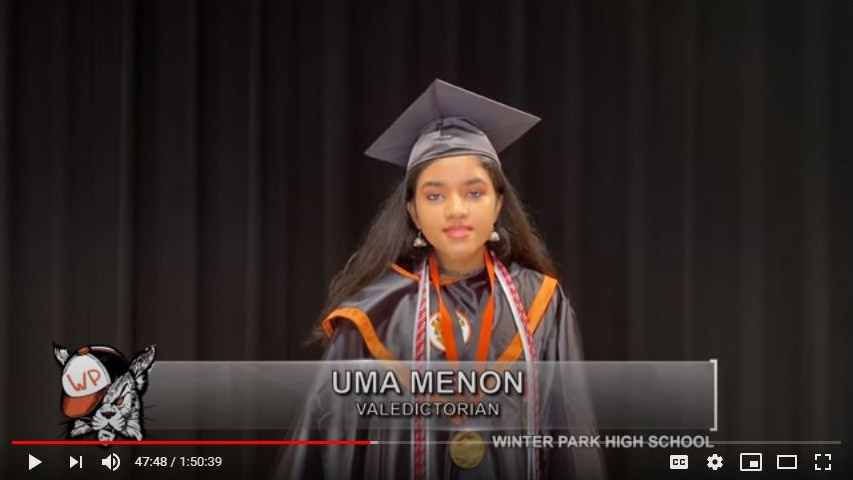
Photo provided by Uma.
Last night, I graduated from high school. Not alongside my classmates and teachers in an auditorium, but from a couch in my living room. I gathered around with my parents and grandmother at 8:20 p.m., which, symbolically, is 20:20 in military time. We turned on the television to watch a two-hour video celebration of my graduating class of over 700 high school seniors. Instead of watching smiling teens walk across the stage and receive their diplomas, we watched a video compilation of students walking across their houses and backyards. As a valedictorian, my speech had been recorded at the school auditorium a few weeks back. At that time, it was delivered to an empty hall, but yesterday, it was played like a movie in living rooms across town. After the ceremony, my friends and I texted congratulations to one another – a virtual replacement for the moments we would have spent together at graduation if this was any other year.
QUESTION
Did you take part in any events virtually that you had expected to be in-person? Can you think of one positive thing about it being virtual that surprised you?


The Bigger Picture
Virtual Graduation in Florida: As the end of the school year was interrupted by the global pandemic, many schools were forced to think of creative solutions for hosting graduation ceremonies. Some schools decided to carry out the ceremony online, while others postponed it to a further date. Some schools found more creative solutions such as holding the ceremony in drive-in theaters or at speedways where the students and their parents would be able to join the ceremony without leaving the safety of their vehicles.
Virtual Graduation around the World: Global pandemic made schools and universities all around the globe either cancel or postpone their graduation ceremonies or find more creative ways to hold the ceremony without causing any health risks. One university in India, Indian Institute of Technology, decided to hold the graduation ceremony in virtual reality, where every student's avatar had the opportunity to walk to the stage and get their diplomas from their professors' avatar's. In eastern China, Nanjing University of Posts and Telecommunications (NUPT) used telepresence robots wearing gowns and with tablets showing the students' faces received the diplomas instead of the students themselves. In Japan, "Newme" robots were used in a similar way, remotely controlled and students participating via Zoom calls as the robots got their diplomas instead of them
Olivia
AGE:
10th grade
LOCATION:
Charlotte, North Carolina, USA
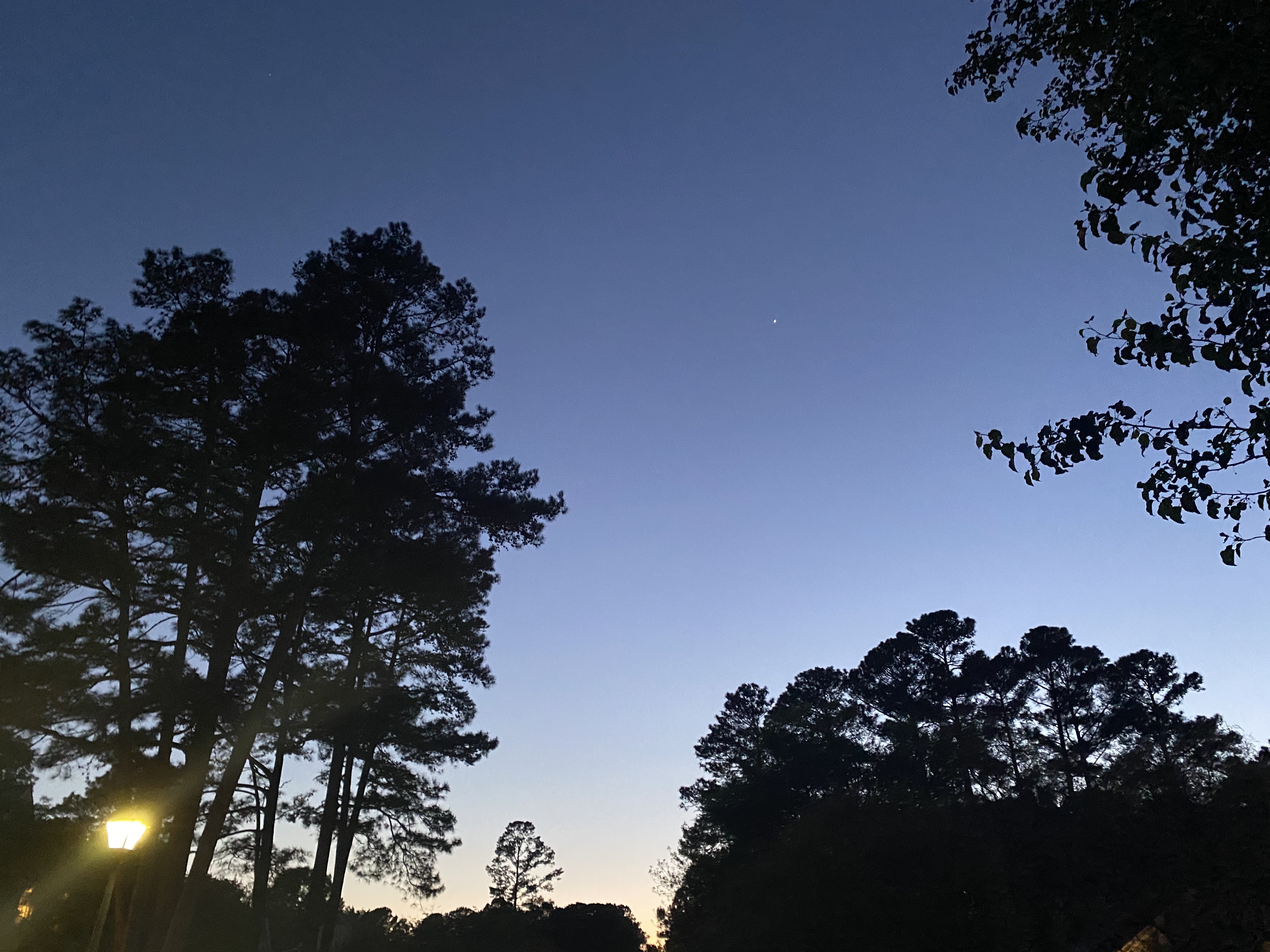
Photo provided by Olivia.
As a current high school sophomore, the presence of coronavirus is agonizing but silent. The formative events characterizing one’s high school experience occur both before and after sophomore year, which can make this experience seem less legitimate in comparison to seniors who are missing prom and graduation, and freshman who are missing the first year of high school. In my own community, sophomores from my school have learned to mutually connect through humour and social media challenges.
My father recently made a comment: “I’ve never been so still before. It’s as [if] life is frozen.” My neighborhood has never been so quiet. My street has been devoid of cars. And yet, in this stillness, life goes on. I have learned to find joy in the smaller things. I discovered in a cupboard an assortment of teas from my childhood, carried with me back from Chengdu, China years ago. Each morning, as if a ritual, my father is downstairs in the kitchen, back bent over a cup of warm tea. The experience of sharing tea, common in Chinese culture, offers me in this “stillness” an opportunity to meditate, and to reflect on fragments of my identity.
I recognize my privilege in being able to simply stay home with resources made readily available for me. Still, I hope to use my privileges to reach out to those in my community who need the support during this time. And for everyone, I hope that during this time, even with the pandemic-induced anxiety, one can find an opportunity for stillness, and reflection, and peace.
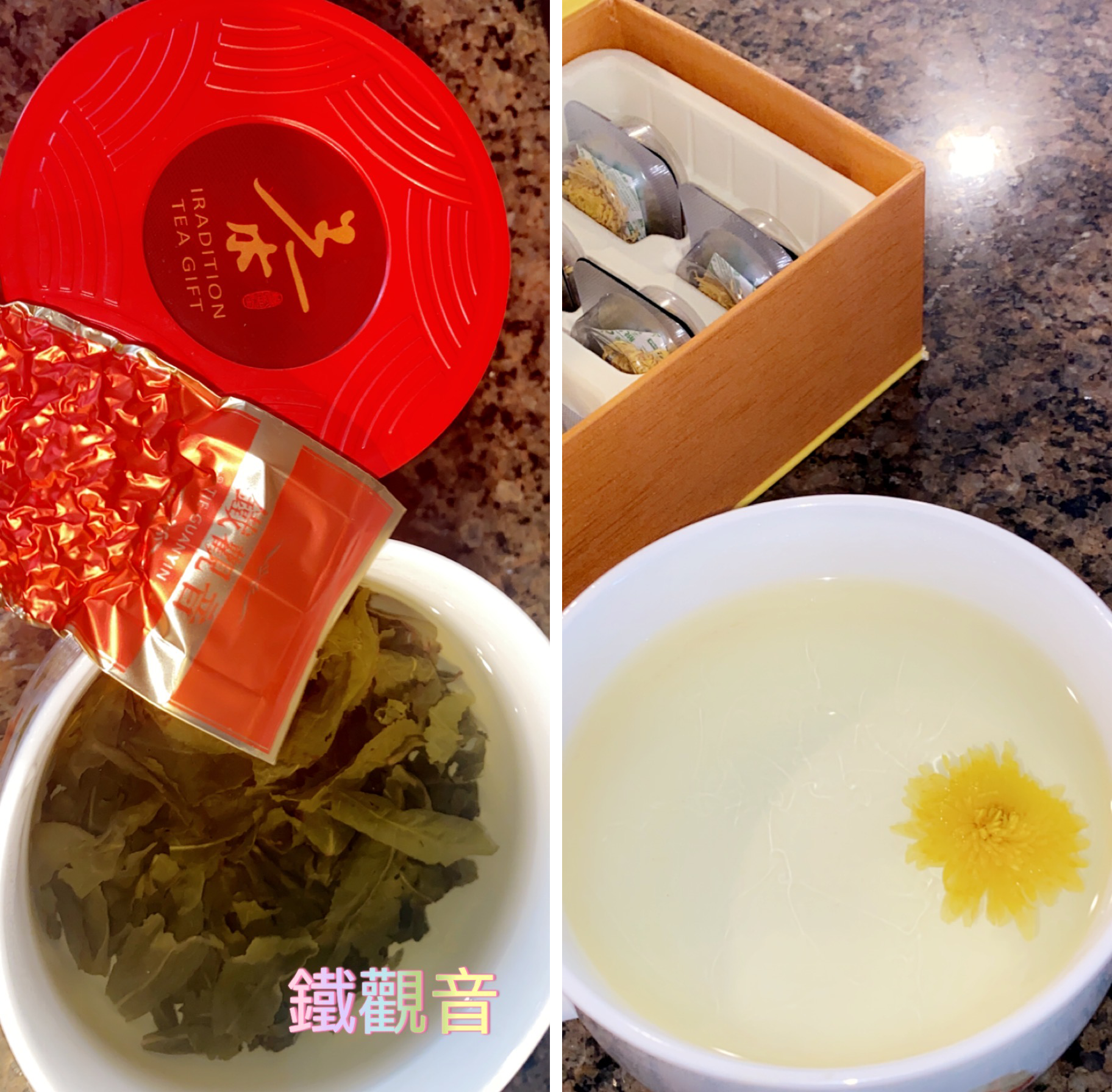
Caption left: 鐵觀音, a traditional herbal tea brought from Chengdu in 2013, rediscovered now. | Caption right: 菊花茶 or Chrysanthemum tea, brought from Chengdu in 2013 and rediscovered during the pandemic — Photos provided by Olivia.
QUESTION
Have you discovered any cultural rituals that you had forgotten about or had not known about before the pandemic?


The Bigger Picture
North Carolina closed its schools mid-March and switched to virtual learning platforms to continue the semester. Switching to online education has resulted in an increase of unequal opportunities for students from various financial backgrounds. Many low-income families, especially those living in rural areas, did not have broadband internet access, vital for remote learning. Furthermore, many houses did not even have computers to connect to the educational platforms.
The pandemic has also exacerbated food access issues. Many children and their families depend on the free meals provided by school districts. Some school districts were able to keep providing food, despite classes having moved online.
Students with special needs are also disproportionately negatively affected by the shift to online learning. Virtual platforms can pose a challenge for students who learn best with tailored educational methods. Some North Carolina school districts decided to provide those students who rely on in-person learning with access to small group learning. When the governor announced that elementary schools would resume in-person learning in October, counties were given the choice to follow the governor’s guidance or to adhere to their own, more restrictie plan.
QUESTION
If you were in charge of deciding whether or not your schools would reopen or not, what decision would you make?
Ihunde Tracia
AGE:
16 years-old
LOCATION:
Kampala, Uganda
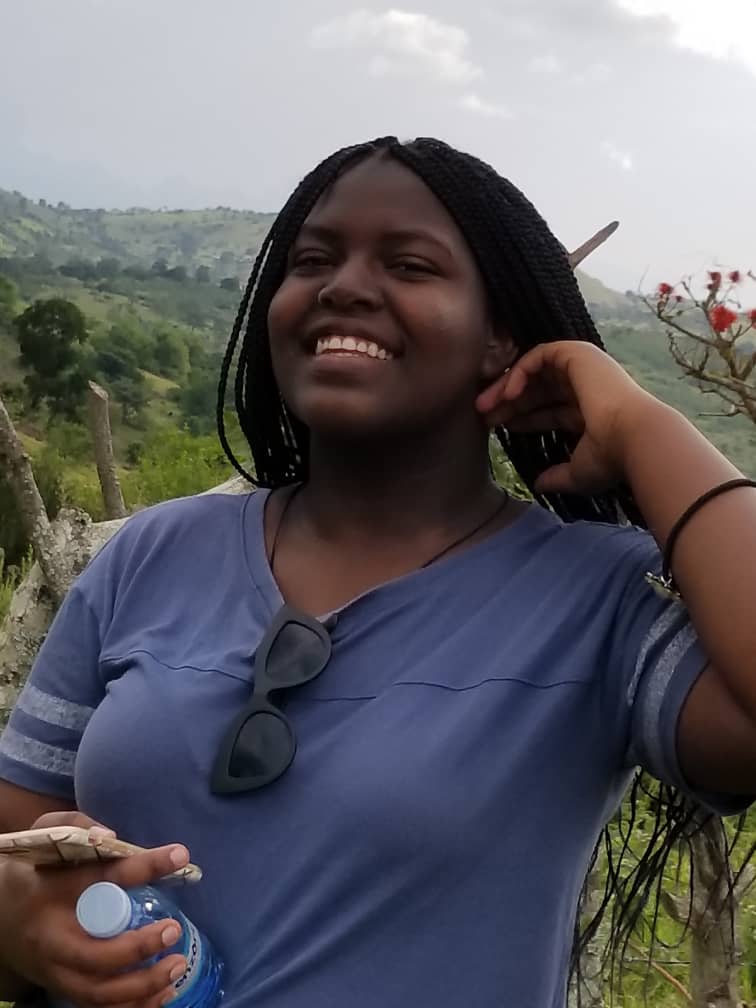
Caption: #QuaranTEENing — Photo provided by Ihunde Tracia.
Despite the chaos in the world, quarantine brought me closer to my family both physically and spiritually. I have also had and still have plenty of challenges adapting to the ways of online classes but I appreciate them even if those challenges are present. Quarantine definitely made me appreciate the little moments in life because they are always the sources of joy and happiness!
QUESTION
What have been your sources of joy and happiness during these turbulent times?


The Bigger Picture
Uganda cut short its academic year on March 18th. The government did its best to provide alternatives, broadcasting lessons via television, radio, and the internet, in the hopes of reaching some of the country’s 15 million students. Yet access has remained a major issue as only 18% of Uganda’s population has reliable electricity. However, more than 80% of Ugandan households own a radio, so the government has teamed up with UNICEF to support local and community-based radio stations as they try to promote literacy. On September 14th, the World Bank approved $300 million USD in financing to Uganda. It is earmarked for local government service delivery in various fields, including education and health. Many remain hopeful that this influx of cash will help students continue their education and assist in closing the achievement gap between students of different socio-economic classes.
QUESTION
How are you using the internet or the TV and radio in new ways during the pandemic?
Sloane
AGE:
21
LOCATION:
Taipei, Taiwan
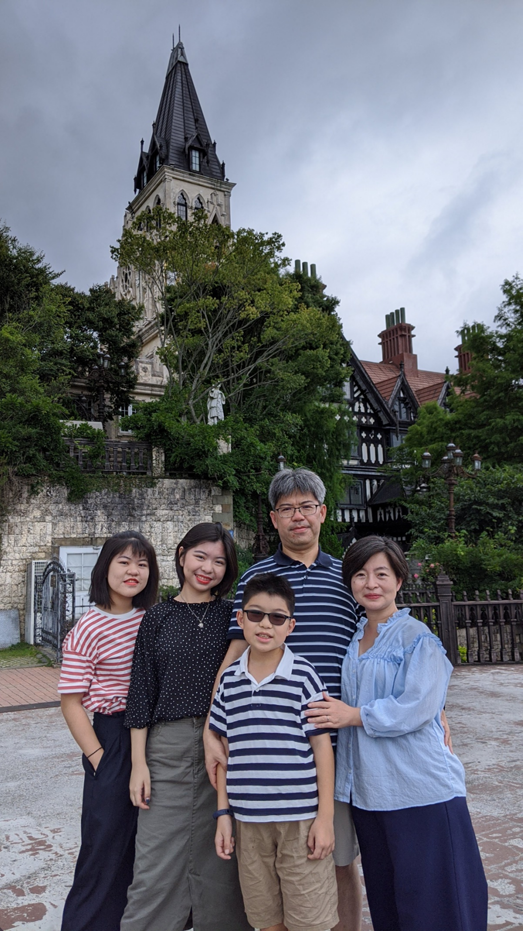
Photo provided by Sloane.
I am a journalism major student, currently in my senior year in Taipei, Taiwan. Living in East Asia, we confronted Covid-19 way earlier than any other region - since January. There were moments we were scared to be the next epicenter because we are so close to China. Fortunately, after 8 months of battling with the pandemic, we never went to lockdown, and life almost stayed normal. I continued going to school and coming to the office for my internship. But that doesn't mean everything is the same as before, at least I am not.
Outside school, I work as a contributing editor in digital media. Reading Covid-19 news stories in different countries is my daily job. Being a rookie in the industry, that period when the world suffered at its peak, that was the very first time I felt immensely in grief when I looked at the death tolls climbed up every minute. Undoubtedly, there were moments I practiced being stone cold, but eventually I was still panicked to witness the skyrocketing numbers. Now, reflecting back to those days, I appreciate my honesty in the tragedy. I do see and believe this would be the strength to be a journalist.
Personally, I also learn the true meaning of distance. At the critical timing, I said goodbye to friends leaving Taiwan, and also welcomed friends living abroad coming back to Taiwan. It was hard, bittersweet, and complicated. If this unprecedented pandemic has taught me anything, that would be: the distance of any relationship may be a struggle, but if you both see this bonding means something, you'll try everything to stay connected. That is definitely not easy, but it's incredibly rewarding.
QUESTION
Do you believe things will ever be the “same as before” when the pandemic is over?


The Bigger Picture
Taiwan is a small island country in east Asia with a population of over 23 million people. Taiwan confirmed its first coronavirus case on the 21st of January. The government quickly introduced a series of control measures, including stricter border controls, a delayed opening of schools for the spring term, and social distancing rules. Compared to the much more stringent measures taken around the globe, life in Taiwan remained comparatively normal. The government did not institute a lockdown, and most businesses remained open. After the first couple of months of the pandemic, Taiwan relaxed its social distancing and compulsory mask rules. Still, the majority of Taiwanese continued to wear their masks regularly, and masks remain mandatory on public transport. The government gave special attention to mask production and distribution. The production of masks grew from 1.88 million per day to 20 million per day. In the first months of the pandemic, the government designed a rationing system to prevent panic shopping and hoarding. Currently, masks are on the open market and are available free at designated pharmacies to prevent overpricing.
QUESTION
Do you think it may be possible that COVID-19 would not have had such devastating effects if more countries took proactive measures like the Taiwanese government did?
Camille
AGE:
19
LOCATION:
Ajaccio, Corsica, France
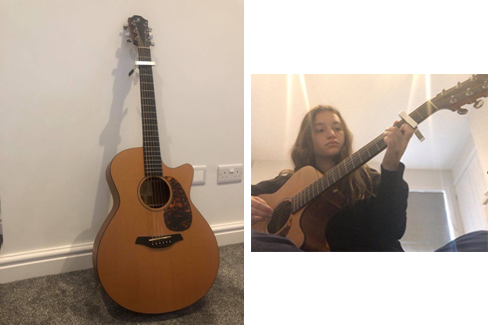
Photos provided by Camille.
As a musician and a student it is often complicated to find the time to slow down to concentrate on my music. Returning to the United Kingdom [for school], I had to self-isolate for 14 days. At first, I thought of all the negative aspects of self isolating: I won't have anything to do, I won’t be able to see anyone... However, after a few days I realized that I had the time and space to finally write and practice music. Musicians need to deepen the understanding of their feelings and spend time with themselves to write meaningful, relatable music. Slowing down from social media, partying, studying, I could do self introspection and write music that reflects my feelings. I could spend time perfecting and practicing the guitar as well as singing techniques. It felt like a unique opportunity; I could finally be alone and express my thoughts. At the end of the 14 days self-isolation period, I was grateful for this time and I am now familiar with the process of writing music, digging, and understanding my feelings
QUESTION
Have the arts provided an outlet of expression for you during the pandemic?


The Bigger Picture
Arts and COVID-19: As people have spent more and more time physically away from their communities, music has become one of the most popular means by which to connect with others and help each other to make the days a bit brighter. Due to restrictions on crowd sizes in traditional music venues, artists have had to get more creative. And so have everyday people! During Italy’s strict lockdown in March and April, people's balconies became their stages; whole neighborhoods hosted impromptu singalongs, with people joining with instruments or their voices. In New York, musicians organized Concerts From Cars, visiting different neighborhoods and bringing music and joy. Romain Malan, who usually performs with the World Harmony Orchestra, performed free concerts on the streets of London for people in self-isolation. In Tunceli, Turkey, Tolga Akgül played in front of the elderly’s doors and balconies to lift their spirits while they were not allowed to leave their houses. An Australian cellist, Josephine Vains played concerts in front of her house for her neighbors to enjoy.
QUESTION
Do you have an example of a unique art event that has happened in your community during the pandemic?
Philomène
AGE:
13
LOCATION:
Paris, France
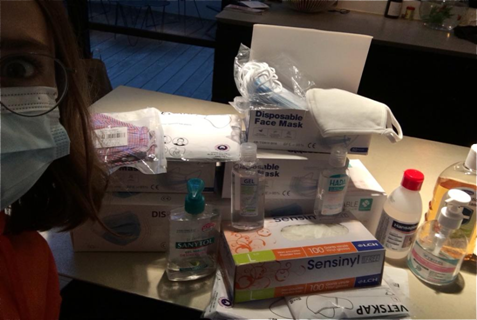
Photo provided by Philomène.
The quarantine was pretty good but I'm glad it's over! (you can check out my sister Léonie’s submission to see what we did during quarantine).
I couldn’t stay inside much longer without seeing my friends... I enjoy going to school a lot more now than before the pandemic as I’ve realized how important it is to have a routine.
It's very difficult not to be able to do « la bise ». This is the French way to say it but it’s two kisses on the cheeks and is the French way of saying hello. French people will do it 100 times a day! But obviously it is not ‘pandemic-friendly’ so we’ve had to put this tradition on hold.
My mom and sister currently have coronavirus.
My dad, my brother and I don't.
So, all three of us can go to school or work and my mom and sister have to quarantine in separate rooms of the house to make sure they are not in contact with us. Life is quite particular when a family member has covid.
We obviously cannot approach them, if they need to walk around the house they do so with a mask and gloves...
It’s quite complicated but we are very careful and we bring them their food at each meal.
As you can see from my picture, we have more than enough materials to stay safe!!
QUESTION
Have you had to put any cultural traditions on hold because of the pandemic?


The Bigger Picture
The ways people around the world greet one another have had to change - in some cases drastically - due to the pandemic. In France and many other countries, one, two, or three kisses on the cheek is the most common way to greet someone. In order to limit contact, however, people have been forced to change these timeworn practices. Some now wave, others have taken to bumping elbows instead of shaking hands. New Zealand’s indigineous Maori group has had to shift from their traditional and culturally important “hongi” greeting, noses and foreheads pressed together, to a simple raise of the chin and eyebrows. Some in China and Tanzania have switched to “foot shaking,” tapping the soles of shoes together, rather than other traditional forms of greeting. In the United Arb Emirates, the traditional nose kisses, touching noses and shaking hands, were replaced with waving or placing one’s hand over their heart. A similar gesture in Turkey called eyvallah, placing one’s hand over their heart and slightly bowing, has newly emerged from ancient Ottoman traditions.
QUESTION
How have you changed the ways you greet others during the pandemic?
Luke
AGE:
17
LOCATION:
Charlotte, North Carolina, USA
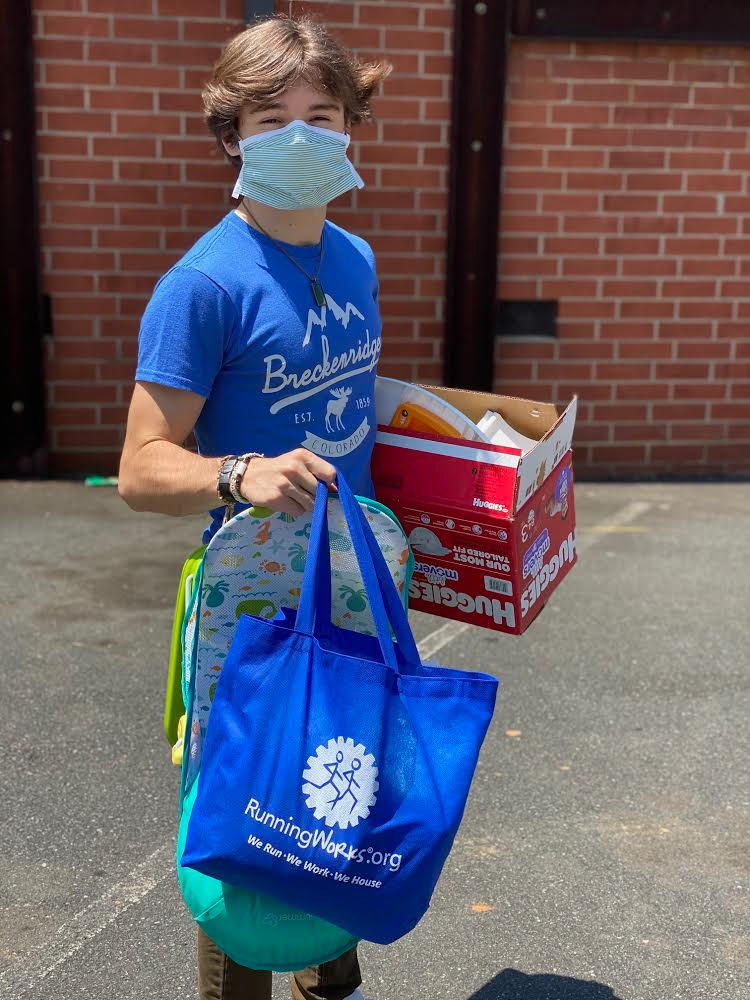
Photo provided by Luke.
Overall, Quarantine pushed me to accomplish more with my free time. For the first time in a long time, I had more free time than I could ask for and was determined to make good use of it. I focused a huge quantity of my time towards building my nonprofit and by the end of summer, exceeded my expectations of myself. In the short summer season, I quickly teamed up with other area nonprofits and was able to manage a weekly lunch program, donate 200 care packages, deliver groceries to families on a weekly basis, and establish a $1250 fund to ensure that even after I stop working, people that depended on me continue to receive their assistance. The fact that all of this occurred during the COVID pandemic only serves to show that even in times of economic instability, people are genuinely good at their core and are always willing to help
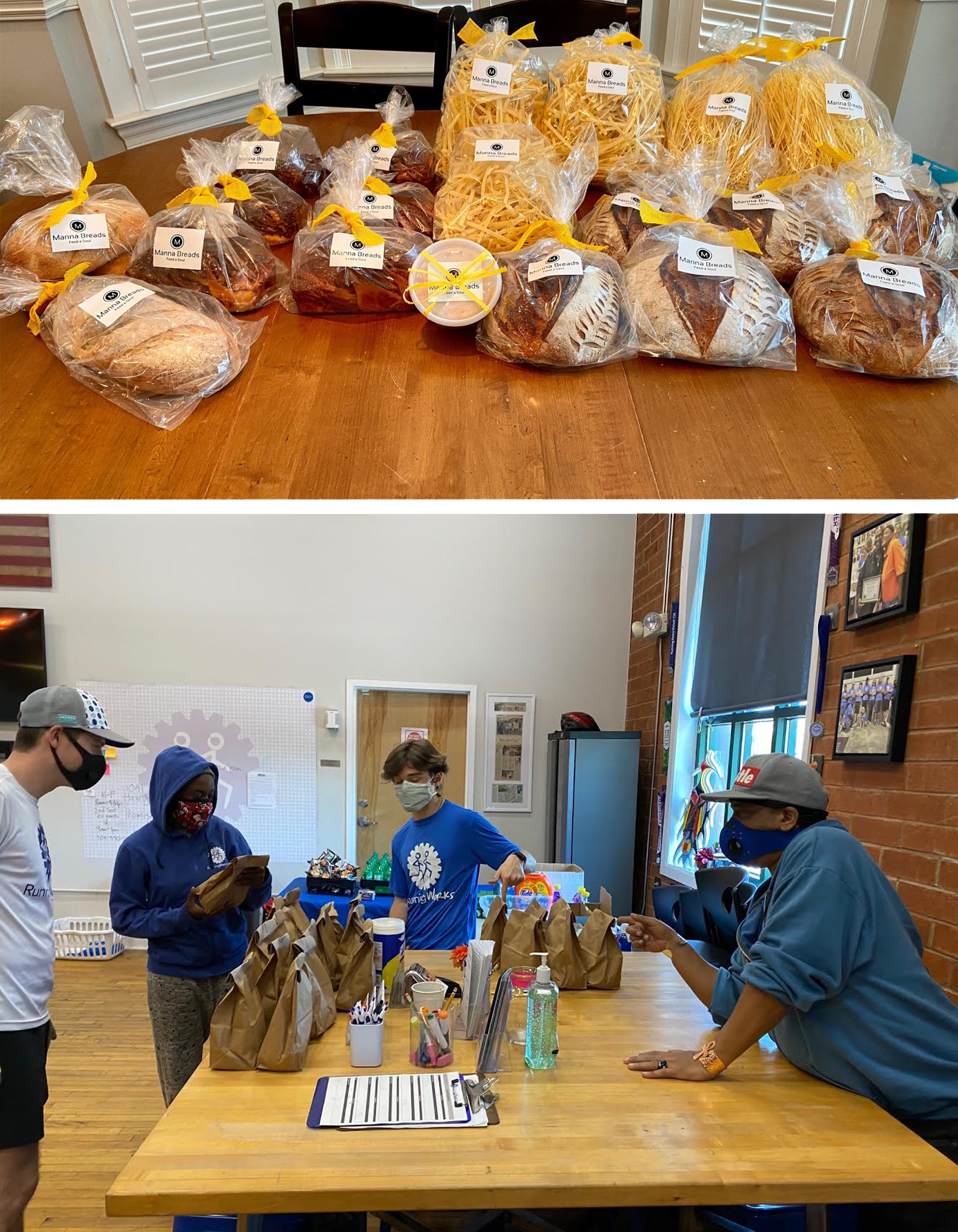
Photos provided by Luke.
QUESTION
How have you taken action to help your family or community during the pandemic?


The Bigger Picture
Teens around the world have been stepping up to help their communities during the pandemic in creative ways. In the UK, teens have been volunteering to deliver medical and essential supplies, like groceries, to elderly, vulnerable, and self-isolated people who are at too great a risk to access those supplies on their own. The famous Ndlovu Youth Choir in South Africa created a special music video in different languages native to the country to dismantle myths about COVID-19 and raise awareness about safety precautions. Teens across the US are volunteering as poll workers for the upcoming election, even though they are too young to vote, in order to help fill the vacancies left open by elderly people who typically comprise most poll workers in the US. In Zimbabwe and Nigeria, some teens served their communities by offering educational lessons via Whatsapp or in their driveways to offer cheaper alternatives to accessing information while schools were closed.
QUESTION
Can you identify other ways teens around the world can be active in helping their community during the pandemic?
Obinna
AGE:
17
LOCATION:
Newark, New Jersey, USA
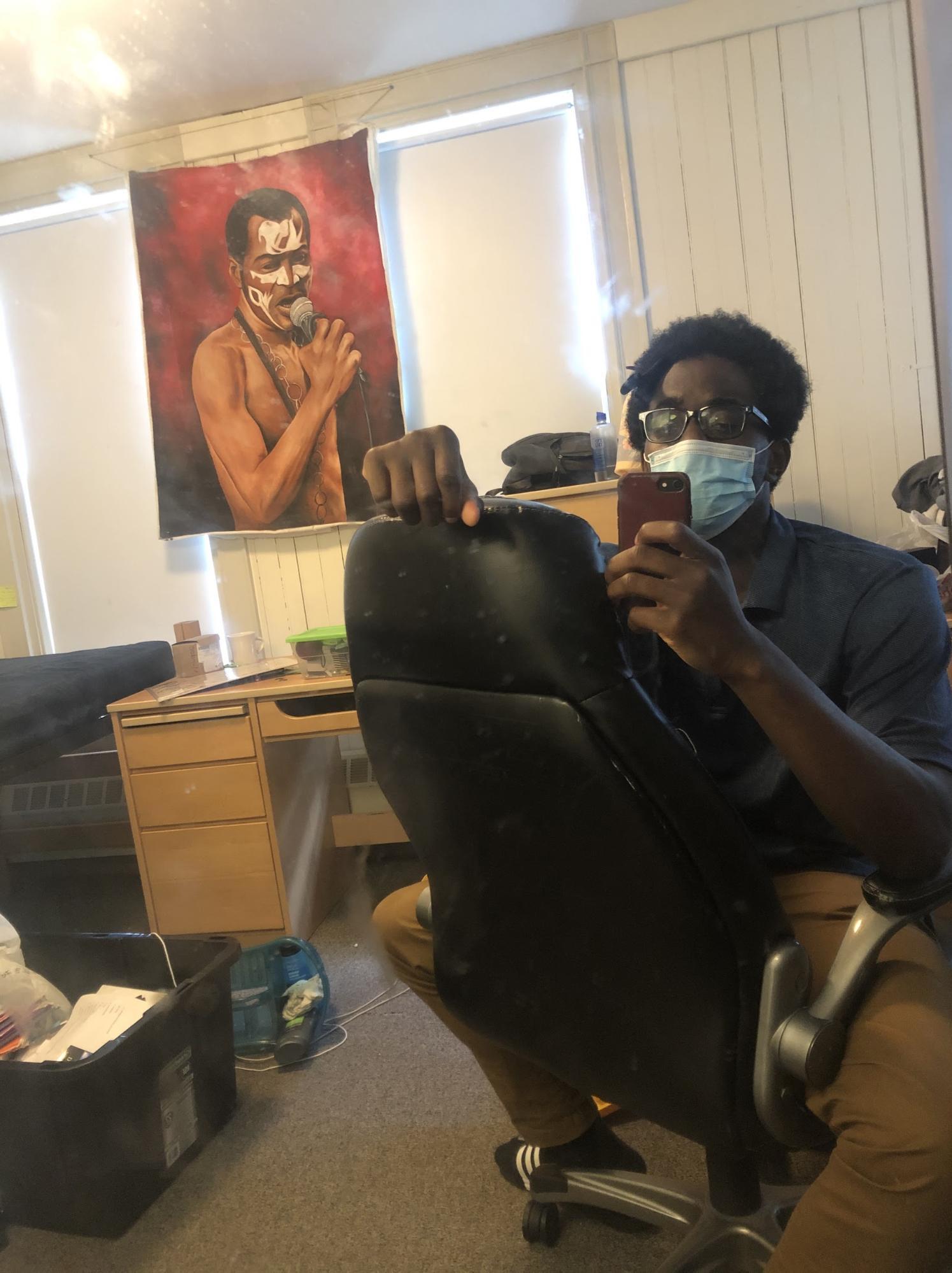
Photo provided by Obinna, Stories from the Pandemic (https://www.storiesfromthepandemic.com/).
I bought my first journal on March 1, 2020, and wrote my first entry on March 3. I have been writing ever since. At the time, I was finishing up the winter term of my junior year at Groton School in Massachusetts.
If you ask anyone at Groton, being at a school like that is like being in a bubble. Despite that, we were all aware when coronavirus first became prevalent in the world. The weird part is that none of us thought it was real. In our little bubble we felt safe, and we had an administration that perpetuated that narrative, that illusion.
By the time Spring Break came around, I had forgotten about coronavirus and was focused on the day-to-day fun of being on vacation. I planned to stay up in Massachusetts with my roommate for one week and then drive down to New York with him and his family to go on some college tours, but this plan ultimately had to be trashed.
My first week out of school was spent visiting the local high school to lift and play basketball, then going to various stores throughout the city for snacks and drinks. All of a sudden one day, the streets turned barren and the stores closed, except for a few where everyone was stocking up on rolls of toilet paper and holding up the lines at checkout with disaster packs of food and water.
I hadn’t been following the media coverage so this all seemed very odd. On the same day, the college tours in New York were cancelled because things were starting to happen there that made social distancing the new norm. Eventually my parents came to take me home, where the real impact of this virus became felt.
More people fell ill, and the world seemed chaotic. All I felt was disappointment as I watched the news each day and became more aware of everything that was being ripped away from me. Each day felt dimmer and dimmer, a feeling that built up in me despite the fact that I was safe in the comfort of my home, with both of my parents working uninterrupted from home while I took online classes. My home was my sanctuary and stepping outside could mean hospitalization or death for me or my family.
The world around me had gone awry and the little control over my life that I once had was non-existent. On top of the pandemic, I saw that injustices done to black people were still growing despite the crisis.
I think the worst part about anger is that it can’t always be expressed or alleviated. Sometimes you must sit with it and that is what I’ve been doing. My parents forbade me from joining any protests so instead, I took the time to write and reflect.
I am a 17 year old Nigerian-American, and being home has made me think hard about what that means. I have never before had to scrutinize my own mortality so closely. For me, this time has been a chance to realize that I have always looked at my privileges as givens in this life. They are not, so I am more thankful for them. With this truth, I feel grounded by a new sense of resilience.
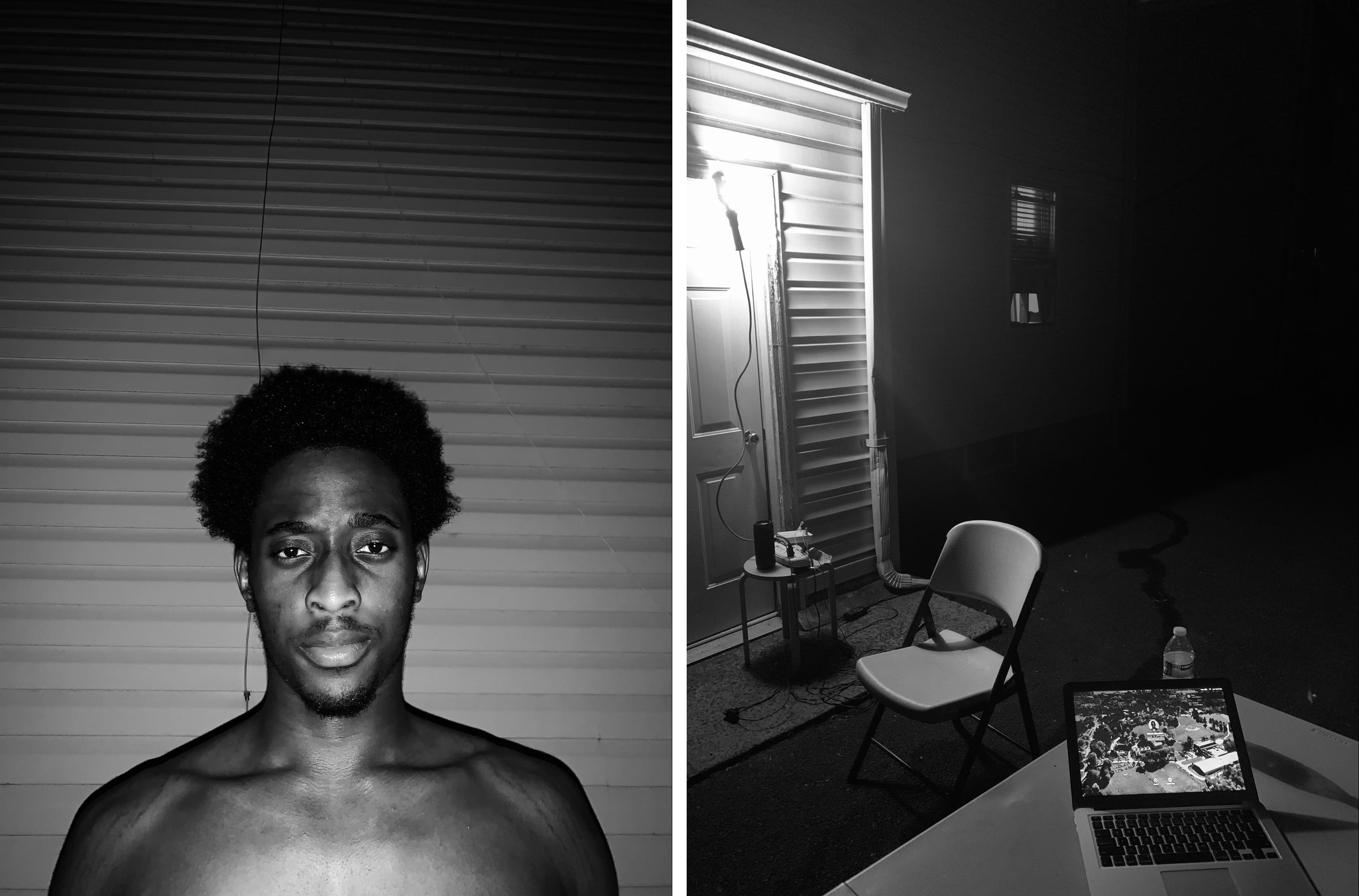
Photos provided by Obinna, Stories from the Pandemic (https://www.storiesfromthepandemic.com/).
QUESTION
Do you feel like you're in a bubble? Do you see bubbles people have created in your community?


The Bigger Picture
The pandemic has further exposed deeply-rooted racism and inequality in the US through higher rates of unemployment amongst Black Americans, disproportionate rates of COVID-19 infections for people of color, and police brutality against Black Americans and people of color. These “three crises” have led to a surge of protests across the US and the world calling for racial equality and equity. There have been calls for institutional reform and a reallocation of resources in the US, in the hopes of seeing the safety and well-being of marginalized groups restored and valued. Around the world people are taking to the streets calling on their own governments to reexamine discriminatory policies, and removing statues of historical figures who were involved in the slave trade. The pandemic has exposed inequity and violence around the world; despite health concerns, people are taking to the streets to protest and demand change from their governments.
QUESTION
How do you create safety and solidarity for yourself and loved ones at a time when tensions are high due to social conflict and threatening health risks?
Cindy
AGE:
19
LOCATION:
Paris, France
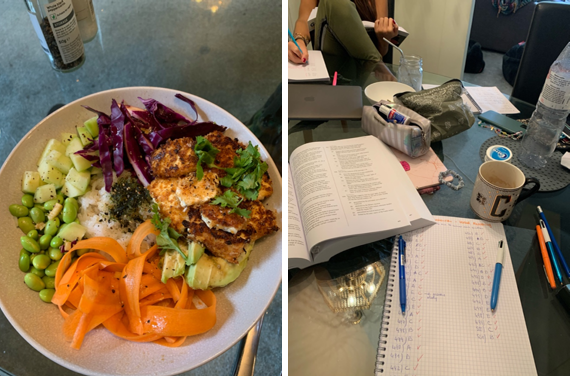
Photos provided by Cindy.
The world that we have been living in has drastically changed since the pandemic. It has affected people differently. Personally, it has allowed me to take more time for myself and reconnect with myself. It is very easy to get lost in the day-to-day activities of the world, especially when moving out of your parent’s house, living with friends, and going to university. During quarantine, all the external stress and pressure from the outside has been halted for a moment. I focused on myself, trying to build a better person by learning new things and becoming healthier. Everyday I would challenge myself to workout and cook healthy meals. Since quarantine, I have tried to maintain all those healthy habits.
Now going back to university, I am trying to adjust to the new normal. Due to Covid, most courses are online. I have to work from home instead of going to the library. It is hard to motivate yourself, especially since I’ve been doing this since February.
This year is my third year at university, which is the hardest. I have many deadlines and work. The fact that most courses are online and that I will not be living a normal student year this year is particularly challenging. There’s no one to push yourself to work at home and be successful, except for yourself. This continuous self-work is tiring in the long term, however I know that everyone is in the same situation. This is why I cannot complain and am still trying to cope with the new normal.
QUESTION
How do you motivate yourself while taking online classes?


The Bigger Picture
France reopened its universities in September. Even though virtual learning remains an option, most students are expected to attend in-person classes. Various measures such as mandatory mask wearing and limitations on campus social gatherings have been put in place. It is not always possible for students to follow the social distancing rules as the size of the lecture rooms and corridors are impossible to change. Since the first weeks of the new semester, students from all over the country have been complaining about packed classrooms, which render social distancing during lectures impossible. In some instances, not only were all seats full, but some students were sitting on the floor or on the steps of the classroom. Students in France started the hashtag #Balancetafac (“call out your uni”) on Twitter, where they shared photos and videos of overcrowded classrooms, talked about the lack of soap in university bathrooms and how universities were not disinfecting lecture rooms between classes, and that they were unable to open classroom windows. Some universities divided students into groups to better facilitate social distancing, but this practice is not widespread.
QUESTION
Have you found ways to call out injustices you have witnessed during the pandemic?
Almesha
AGE:
16
LOCATION:
Newark, New Jersey, USA
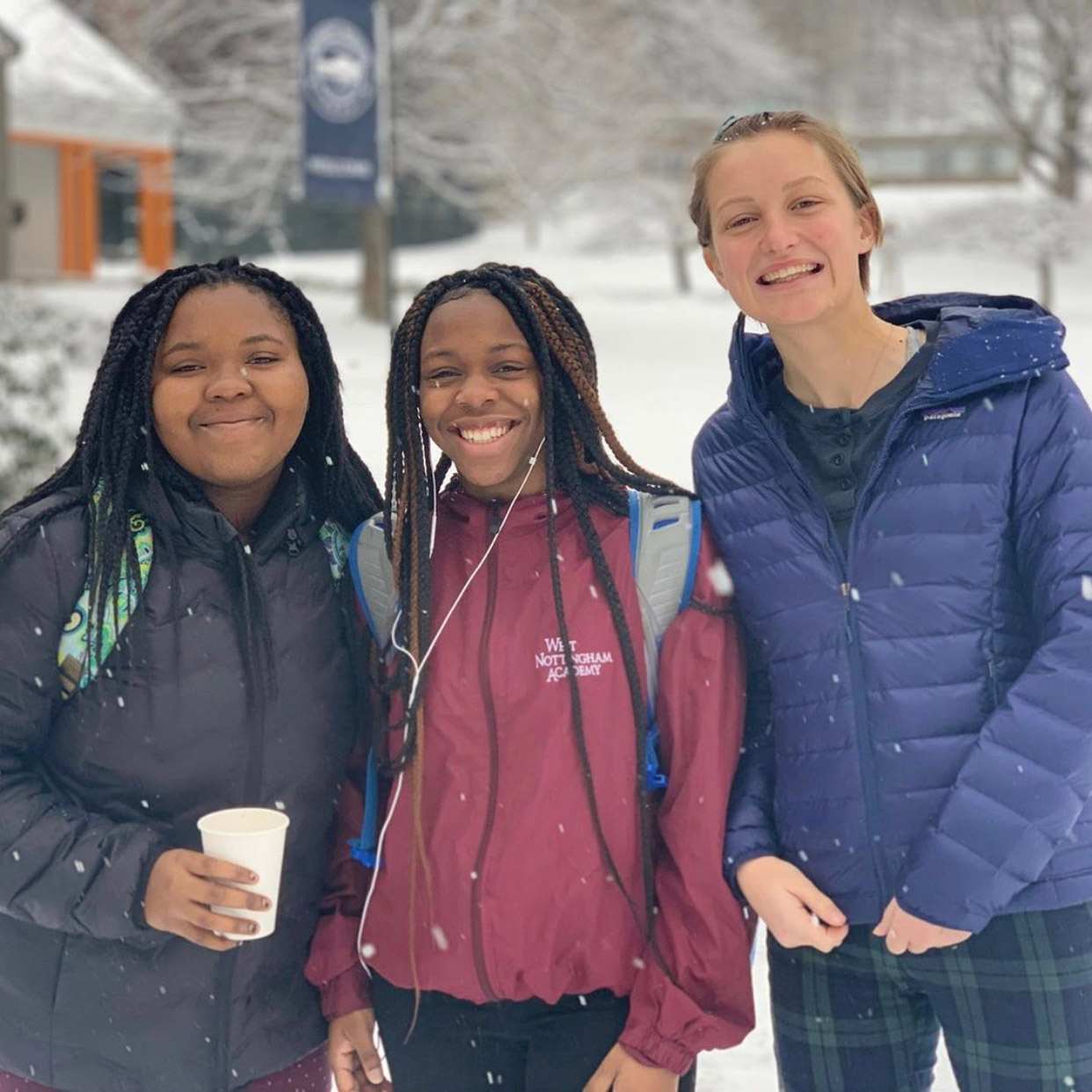
Photo provided by Almesha, Stories from the Pandemic (https://www.storiesfromthepandemic.com/).
“This too shall pass,” my instructor on Zoom told me as I sat trapped inside a box of a room, losing my mind. Since the start of quarantine, my whole life has changed, in some ways for better and in others for worse.
I live in the city of Newark, New Jersey, but I commute frequently because I attend boarding school in Dublin, New Hampshire. Everything I needed was right there on campus. I lived with my best friends who were from all different parts of the world. My teachers were always in reach if I needed help with work. I was a part of clubs and sports, I was one of the leaders of my affinity group, and I had a supportive community. The coaches make sure you have a healthy balance, from your meal choice to mental wellness. You’re not only an athlete, but you're a student - and most importantly, a part of the community. School had become my new home until March 6th, when we were sent back to our families for Spring Break, not knowing that it would be our final goodbye for the school year. When I returned to Newark, the city was on lockdown and New Jersey had the most coronavirus cases after New York. The majority of my family works in the medical field, so hearing their stories of what they have to encounter every day is frightening. The virus was spreading like wildfire; even if you were covered up and protecting yourself, you could still contract the virus.
Being stuck in the house without a social life outside affects you mentally, especially if you’re a teenager. While finishing school virtually, I grew tired of staring at the screen and emotionally tired of being in quarantine. I felt like I had been robbed of my freedom to live the life I should as a teenager. As a Girl Scout I made a promise “to serve God and my country, to help people at all times…” I decided along with my troop leader to distribute cookies, with the help of donors, to those who are helping and serving the community. We gave the donated cookies to food workers, gas station attendants, hospital workers, and police officers. Giving back to others brings positivity within the community and gratitude, to let the workers know that their hard work doesn’t go unnoticed. This good deed helped me to feel good inside and inspired me to write a list of my goals for the summer. It helped me to stay focused and busy during quarantine, preparing me for the next school year. I realize this is a time for me to work on self-improvement. If you let this tough time defeat you, it’s a lost opportunity to grow.
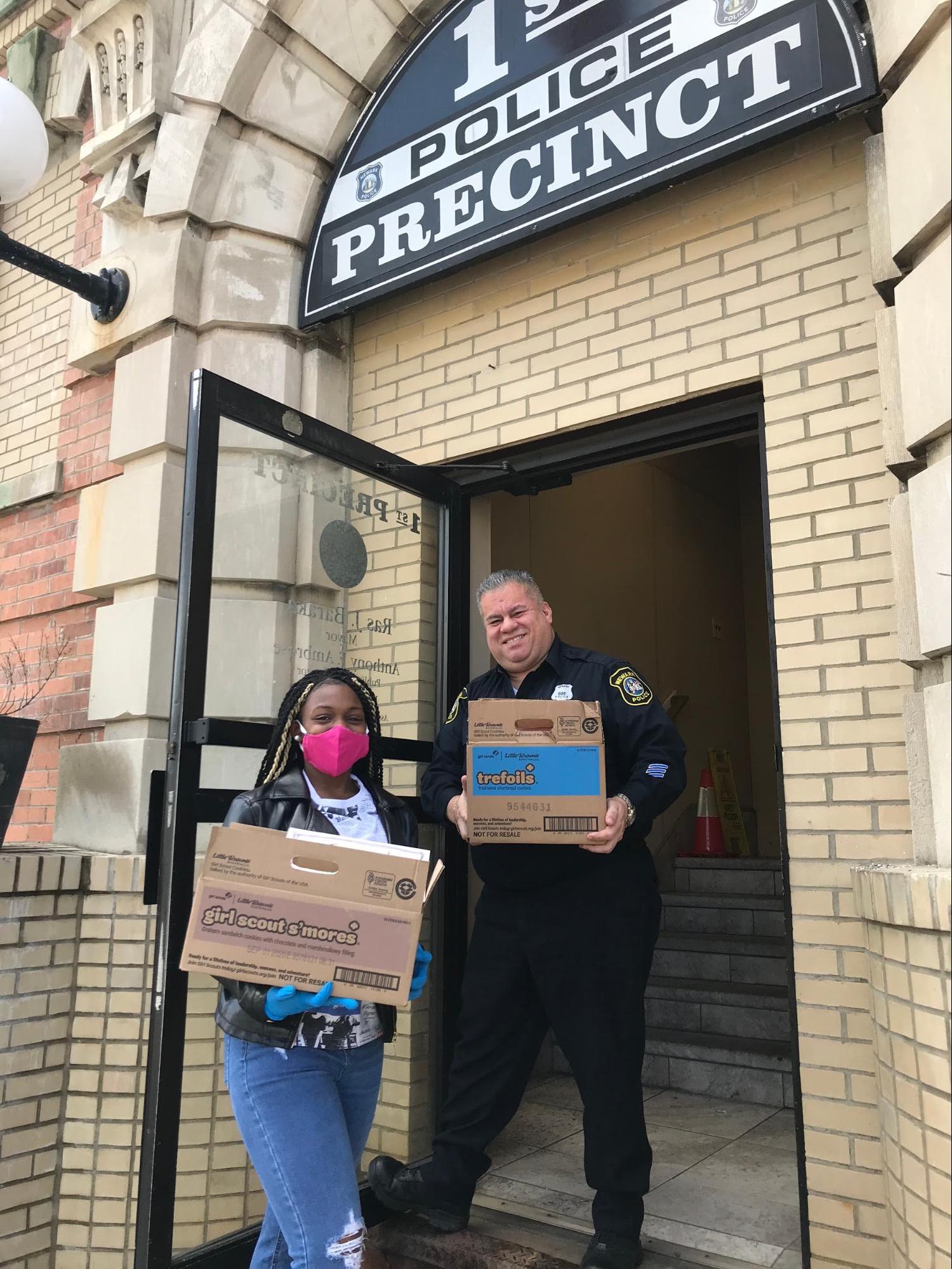
Photo provided by Almesha, Stories from the Pandemic (https://www.storiesfromthepandemic.com/).
QUESTION
In what ways have you grown stronger as a person despite the negativity and uncertainty of today?


The Bigger Picture
Teens around the world have been stepping up to help their communities during the pandemic in creative ways. In the UK, teens have been volunteering to deliver medical and essential supplies, like groceries, to elderly, vulnerable, and self-isolated people who are at too great a risk to access those supplies on their own. The famous Ndlovu Youth Choir in South Africa created a special music video in different languages native to the country to dismantle myths about COVID-19 and raise awareness about safety precautions. Teens across the US are volunteering as poll workers for the upcoming election, even though they are too young to vote, in order to help fill the vacancies left open by elderly people who typically comprise most poll workers in the US. In Zimbabwe and Nigeria, some teens served their communities by offering educational lessons via Whatsapp or in their driveways to offer cheaper alternatives to accessing information while schools were closed.
QUESTION
Can you identify other ways teens around the world can be active in helping their community during the pandemic?
Jeanne
AGE:
19
LOCATION:
Paris, France
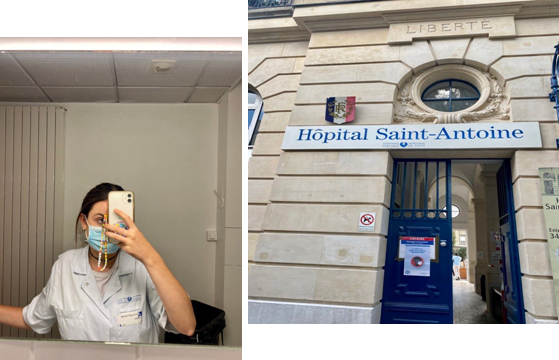
Photo provided by Jeanne.
I am currently studying medicine in Paris, France, so my studies are definitely impacted by the pandemic. We had started an internship at the beginning of September, and I was very excited to finally be able to spend some time at a hospital and have some real hands-on experience! Sadly, due to the current world situation, my university decided to suspend our internship, meaning that out of the 2 weeks I was supposed to spend at the hospital I only had 3 days. I still keep a very good memory of these 3 days, even if I wish there would have been more time!
However, my university has decided to maintain our lessons face-to-face instead of switching to online learning. Our conference rooms are very badly organised meaning we end up being packed up in a small room despite the on-going progression of the virus. I am still quite relieved that we have not gone back completely to online classes as I find it harder to focus on my work without face-to-face lessons.
QUESTION
Were you able to find any remote internship or gain work experience even though many jobs were no longer in-person?


The Bigger Picture
Although many higher education institutions in France and around the world switched to virtual teaching, there are some schools that simply cannot function online. For example, students in clinical courses at medical school have a hard time completing those classes virtually; interacting with patients, encountering case diagnoses, and growing familiar with the hospital environment are vital to doctors’ education. Many countries ultimately put medicine students’ clinical education on pause in order to minimize contamination and enable professors to join the efforts to fight the pandemic. However in some countries, medical students were sent into the fray to learn first hand in overwhelmed COVID-19 wards. Medical students in different regions around the world were classified as essential workers and asked to help out with the pandemic response, prompting anxiety about contracting the virus and/or infecting their families. For those medical students who did not or were unable to assist in medical facilities, some were still able to put their knowledge to good use, gaining invaluable practical experience. Med students volunteered at test centres and distributed tests to communities where they were otherwise unaffordable, and some collected mask donations on behalf of hospitals and clinics. Medical students also played a role in collecting and disseminating accurate information online through curriculum development and infographics.
Sunwoo (Sunny)
AGE:
17
LOCATION:
Seoul, South Korea
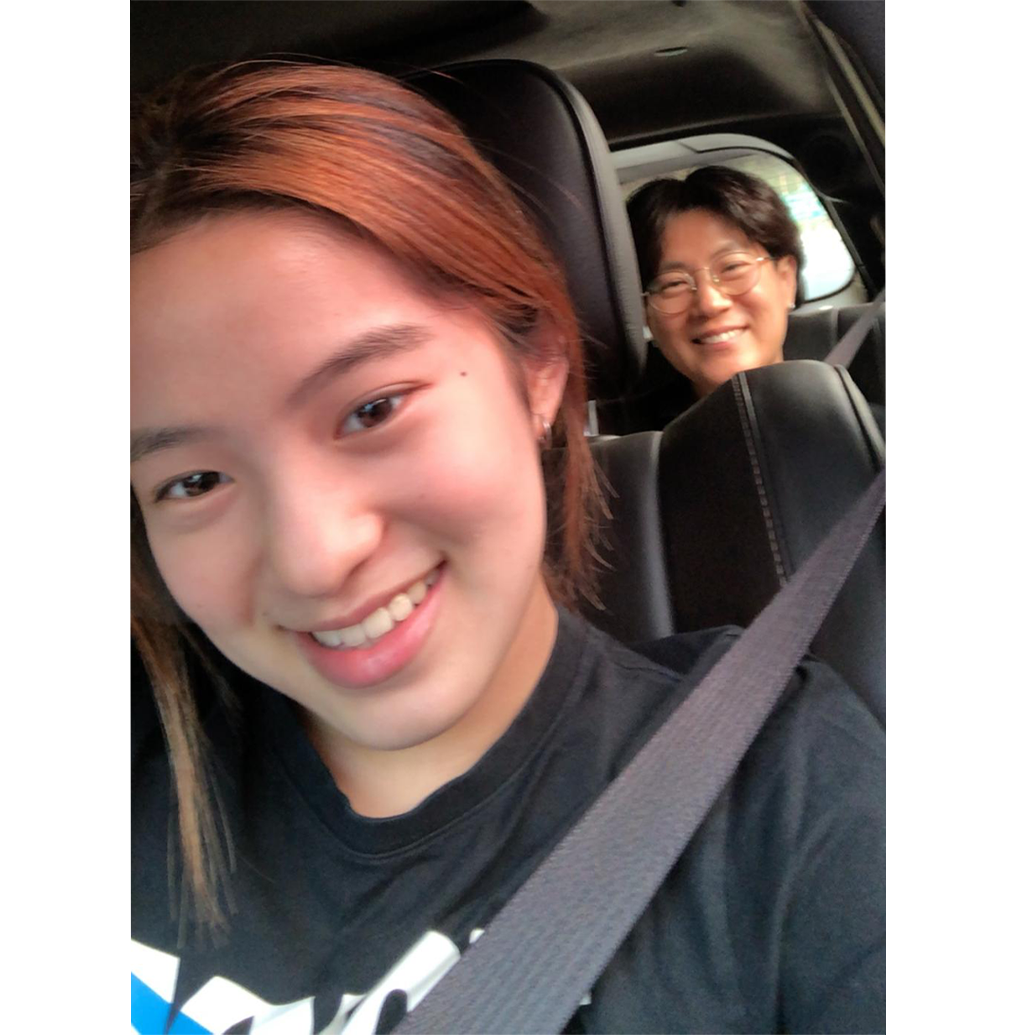
Photo provided by Sunwoo.
In spite of all the negative consequences of this pandemic, 6 months of quarantine can quickly pull family members closer together. Ever since puberty hit me in 6th grade, I have been more of a “friends over family” person. However, staying at home and spending more time with my family members made me realize what I have been missing out on. Especially as an international student who would later go to college and get a job in another country, these night drives with my dad, fun cooking classes with my mom, and pizza nights with my brother would have never happened if it hadn’t been for this pandemic. Rather than going out on Friday night, I would stay home with my family, cook food, and watch a movie together on a beam projector in the living room. Although 7th grade self would have never approved of this, spending time with my family is as equally important and relaxing as, if not more than, spending time with my friends. Many people only list the great things they have to miss out on because of the quarantine situation, but if you start to focus on yourself more, have fun with family members, and explore new interests and hobbies, there is a lot you take away from staying at home. Not only did I foster a healthy relationship with all my family members, I was also able to focus more on myself. Taking a break from my social life made me a more independent being. With the excessive amount of time given, I started to evaluate my best and worst qualities. After my evaluation was done, I was left feeling more confident, knowing that I was making the right steps toward building personal development. Although I am not sure when we will be able to return to our normal lives, I am ready to enjoy and appreciate whatever the future gifts me with.
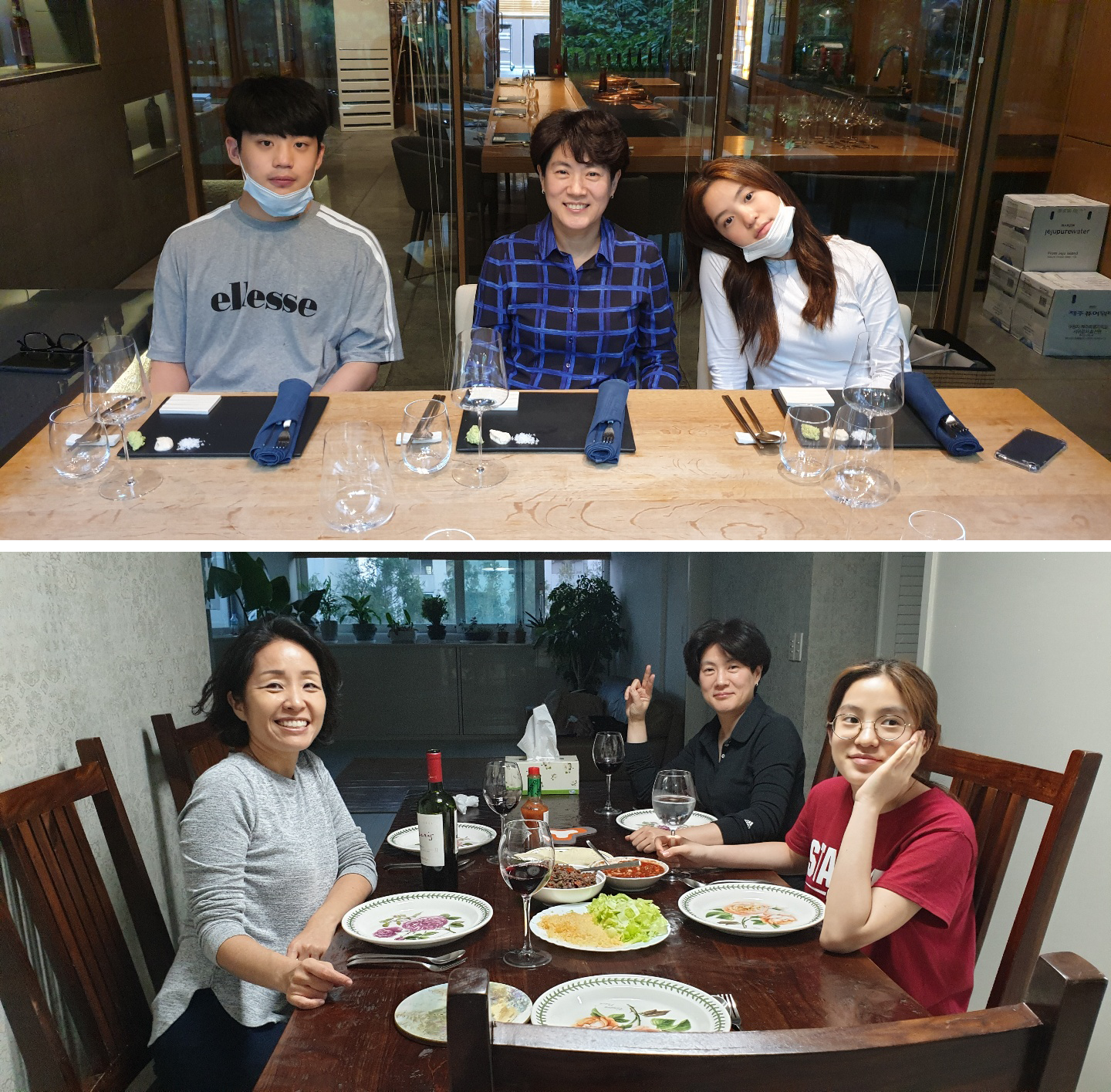
Photos provided by Sunwoo.
QUESTION
What qualities have come out of or have been amplified during the pandemic?

The Bigger Picture
The pandemic and new stay-at-home orders have affected families and relationships around the world. New challenges linked to high rates of unemployment, online learning, and increased time together has led to increased family burnout and strain on relationships. Romantic relationships are also being affected due to increased time together; 71% of respondents in an April survey in the US reported feelings of stress and anxiety, and China experienced unprecedented amounts of divorce filings when marriage offices reopened. On the other hand, however, families who have been separated during the pandemic have found new ways to stay connected, whether through window visits or online video calls. And many families quarantining together have found comfort in the time spent together, despite uncertainties. Families around the world are taking advantage of the unexpected quality time together to get creative with their daily activities to exercise, play, and bond; some activities include parkour, extravagant bedtime stories, experimenting with TikTok dances, and making cardboard guitars to rock out on.
QUESTION
How have your family relationships changed at all due to the new rules and restrictions?
Victoria
AGE:
17
LOCATION:
Culver City, California, USA
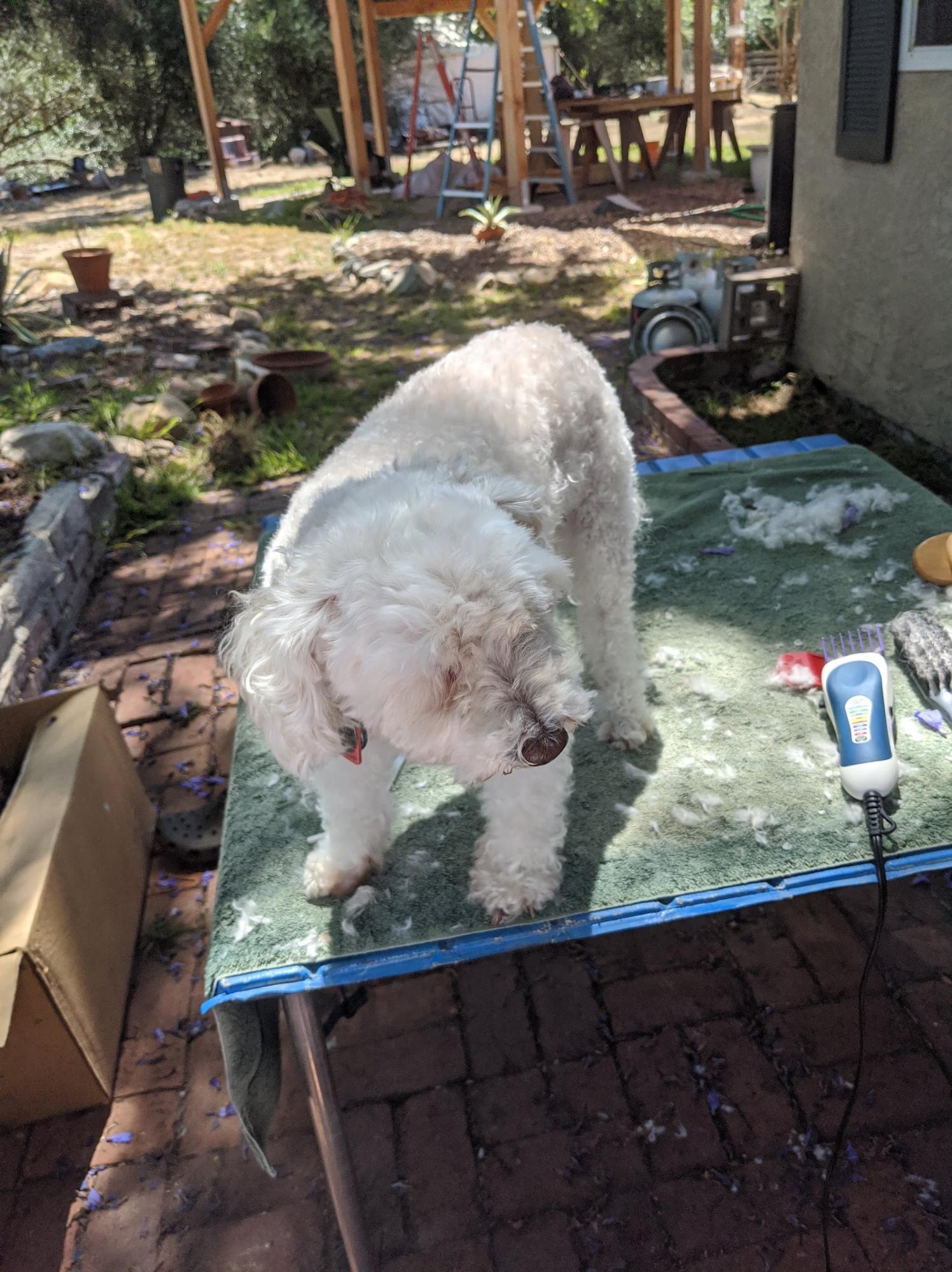
Caption: Giving my dog a haircut during quarantine — Photo provided by Victoria.
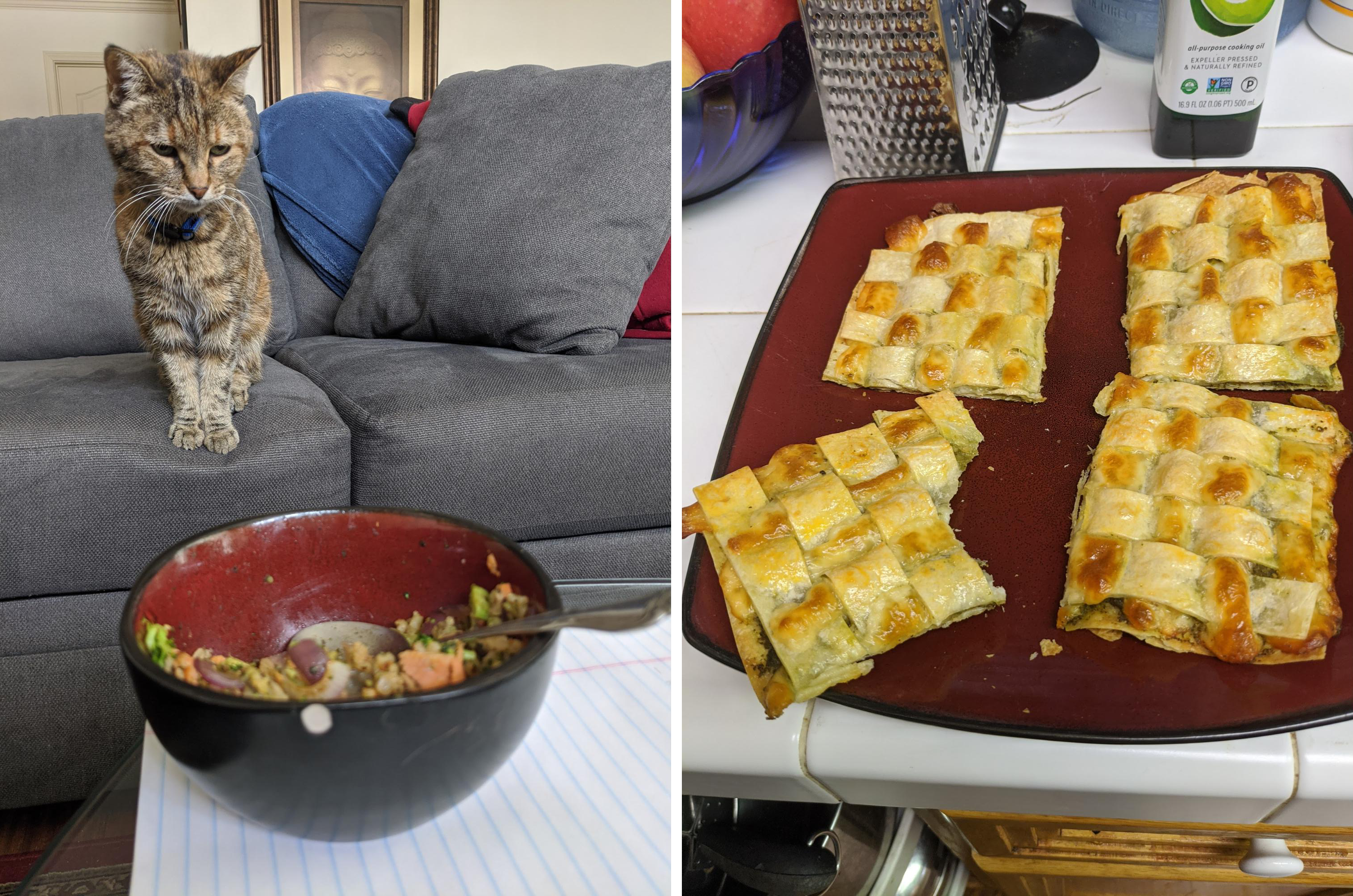
Caption left: Quarantine lunch. | Caption right: Homework assignments during quarantine (Not really!) — Photo provided by Victoria.
QUESTION
How would you represent your life right now in 3 photographs?
Raichel
AGE:
19
LOCATION:
Newark, New Jersey, USA
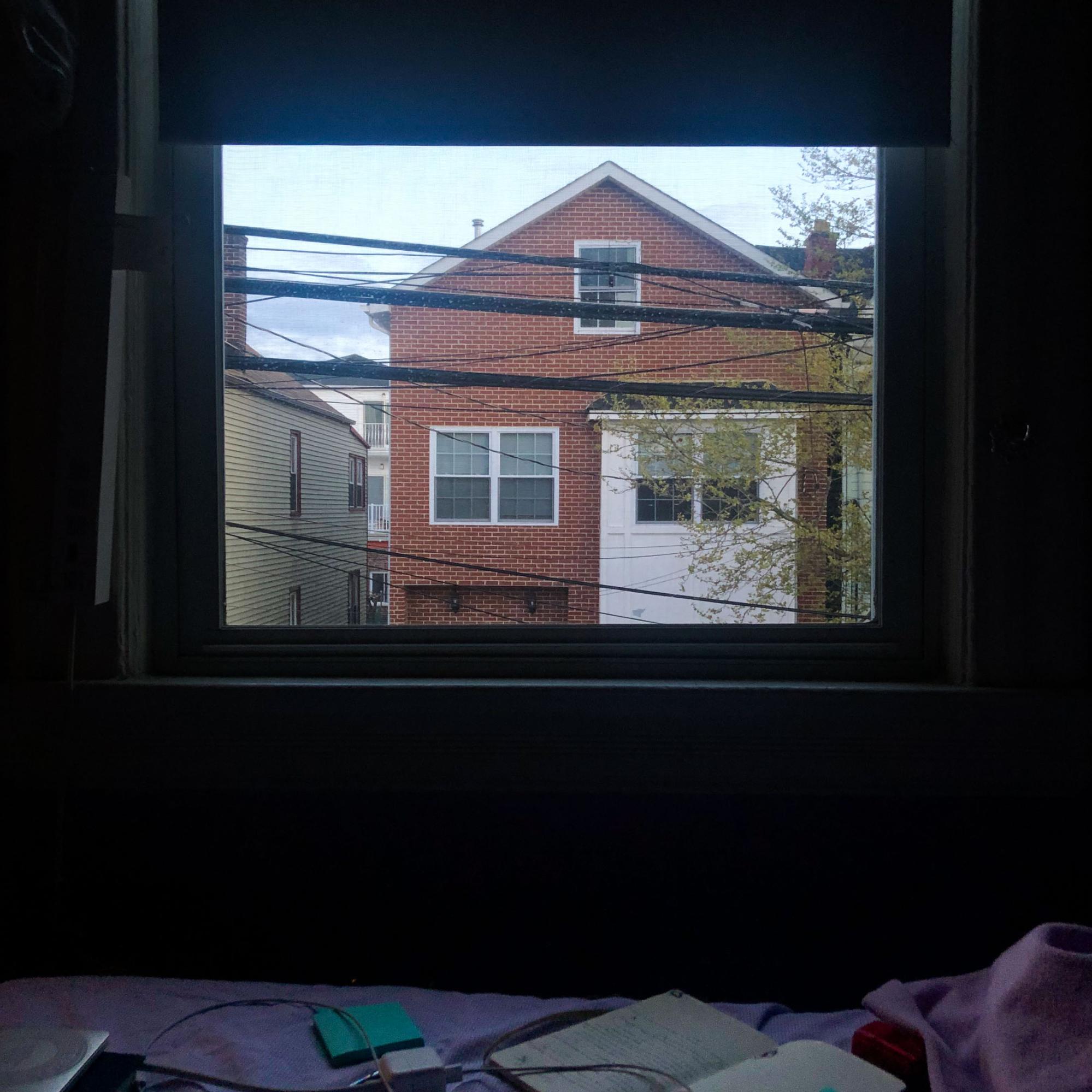
Photo provided by Raichel, Stories from the Pandemic (https://www.storiesfromthepandemic.com/).
Although I enjoy time spent indoors, home is not somewhere I like to be. I do not live in a comfortable home. On campus, I can easily maneuver and ask for help but at home, I am restricted. Although I assume most people are shut in their rooms, just as I am, I do not share a home where I am comfortable leaving my room. I often wait until my family goes to sleep in order to leave for a snack or to eat something.
The pandemic does, however, have some benefits. The only kind of exposure I get is the window in my room that faces the street but the sunlight that brings life into my room in the evening before sunset is refreshing. When most individuals are inside, it is peaceful and puts me at ease. It has allowed me to work on myself and better myself, even if it's just a little, and I’m learning how to take one thing at a time. I realized that in being a college student, I have things I need to prioritize, and I have gotten a better grip on planning my daily schedule, however, on most days it seemed like as soon as I began my day, it was over. I felt like I was watching my days pass me by and I didn’t have time for anything. It sucked the energy out of me. With the pandemic, I have been able to pay more attention to myself. The time I used to take to walk to a building or prepare before a class, I can now use for myself. I don’t have to wait for the evening to come to get personal tasks done. I have been trying to read more and I decided to get back to learning a new language. What keeps me going the most is drawing. It is my way of self-expression, along with writing. I have come to learn to work on my skills for myself and not for others.
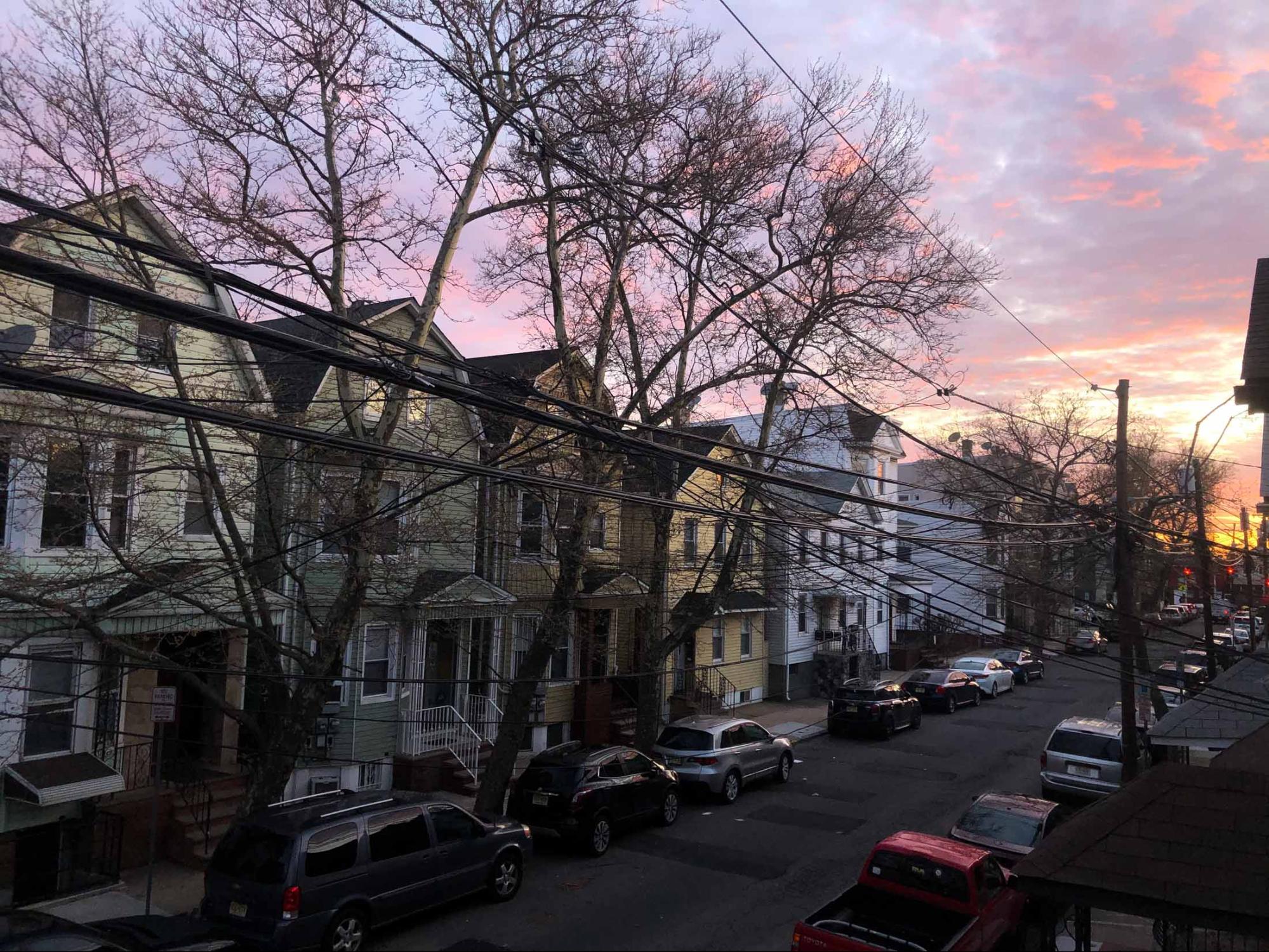
Photo provided by Raichel, Stories from the Pandemic (https://www.storiesfromthepandemic.com/).
QUESTION
What do you see literally and metaphorically when you look out your window?
Léonie
AGE:
20
LOCATION:
Paris, France
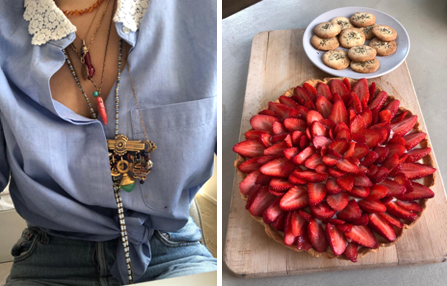
Photos provided by Léonie.
During quarantine, I really adopted a new way of life. The fact I did not have to get up in the morning to go to university was very weird at first. I normally hate staying in the same place. But naturally, habits came along. It also created great moments with my family. We all started cooking for one another, showing each other our favorite recipes. We also played a lot of board games, because at some point, we had pretty much watched everything on Netflix! For my school, I had video conferences every day. It was quite difficult to adapt to this new style of education as I’m studying Art: we had to post our art projects online, and even do live model sketching on Zoom which is so different to how our classes usually take place! I noticed how much time we gained with not having to commute to school every day (about an hour-long round trip), so I started to think about starting a project. Since I was little, I made jewelry all the time. So, I decided to start my own little jewelry line. I never would have done it if these three months of lockdown had not taken place. Sure, it wasn’t always easy, but I think it really helped a lot of people to ask themselves questions about their life, figure a lot of things out, and mostly, it broke everyone’s routine: we all got to do things we would never have done before. It made us realize how lucky we are and how much we need to enjoy what we have.
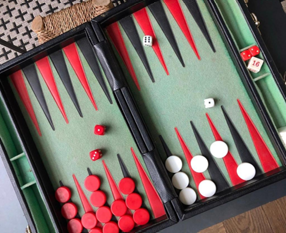
Photo provided by Léonie.
QUESTION
How has the pandemic broken your daily routines for better or worse?


The Bigger Picture
Small businesses or entrepreneurs in France during pandemic: France’s initial lockdown in spring 2020 negatively impacted small businesses all over France; bars and cafés in urban areas particularly suffered. Since the majority of businesses in Paris depend on the city’s massive tourism industry, the flood of trip cancellations began hurting business beginning in March. Although the French government tried to ease the effects for small businesses, freezing rents and supporting staff with up to 80% of their salaries, the pandemic’s unexpected duration and its ongoing infection rates have pushed many of these businesses towards bankruptcy. Obtaining government support has not been an easy process; there are almost two million small businesses in France and the system is overwhelmed. Just completing the necessary paperwork can take 2-3 weeks. The gross uncertainty wrought by the pandemic, as lockdowns and curfews have been enacted and then lifted, only to be reinstated, has only raised more questions for small business owners as they attempt to file claims with their insurance companies. The abruptness of the measures and lack of prior dialogue with business owners sparked protests across France. The French government has planned an expansion of small business support amid aid measures worth 20 billion euros. Yet some business owners ask if this is too little too late. Business is down and with limited working hours during curfew, many are uncertain how long they can last if life does not return to normal in the coming months.
Joshua
AGE:
15
LOCATION:
Seoul, South Korea
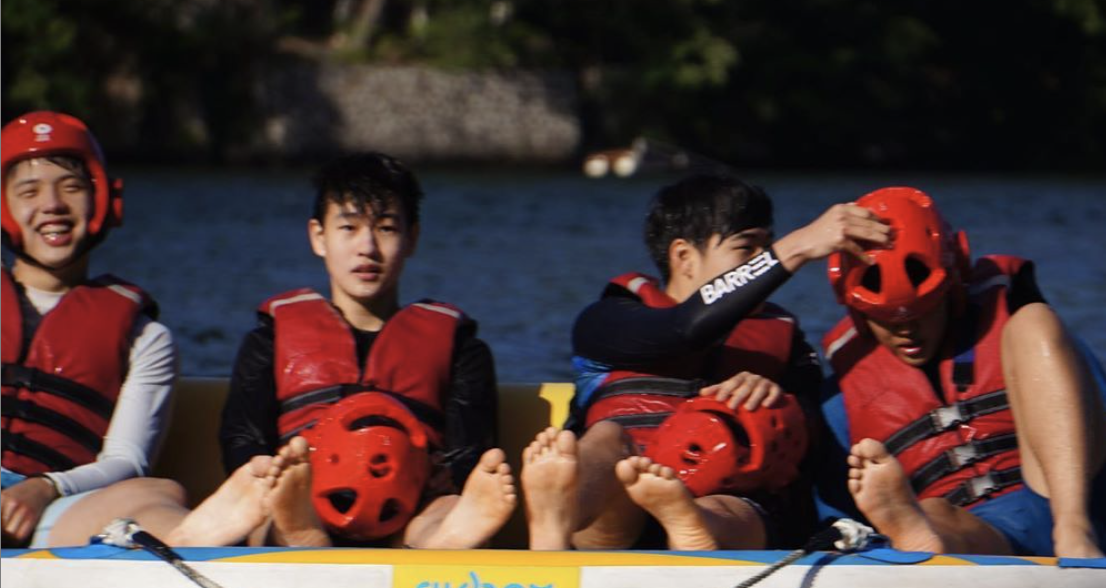
Photo provided by Joshua.
My name is Joshua Lee, an ordinary student studying at Seoul International School, located in South Korea. My academic and personal lives completely shifted compared to pre-corona life. The academic atmosphere dramatically changed; the traditional classroom was replaced solely by online learning. The limited interactions in the class and sudden changes made studying extraordinarily dull and uninteresting. Besides, wearing a facial mask became an unwritten law in society. I couldn’t go outside without a facial mask. Despite facing the unfortunate pandemic results, I found multiple ways to overcome this situation. My friends and I planned to go to Gapyeong, a small lake city where barely anyone lives. Gapyeong was famous for its water leisure; however, hardly anyone visited due to the recent pandemic. My friends and I decided to take advantage of the situation and see the COVID-19 free place. We spent a splendid time riding waterboards, jetpacks, and much more.
Fortunately, the increased public awareness of coronavirus halted the rapid escalation of COVID-19 cases, and this decreased trend allowed people to have fewer limitations. The battle against COVID-19 is going to be hardly defeated, but I am confident that we can beat COVID-19 together.
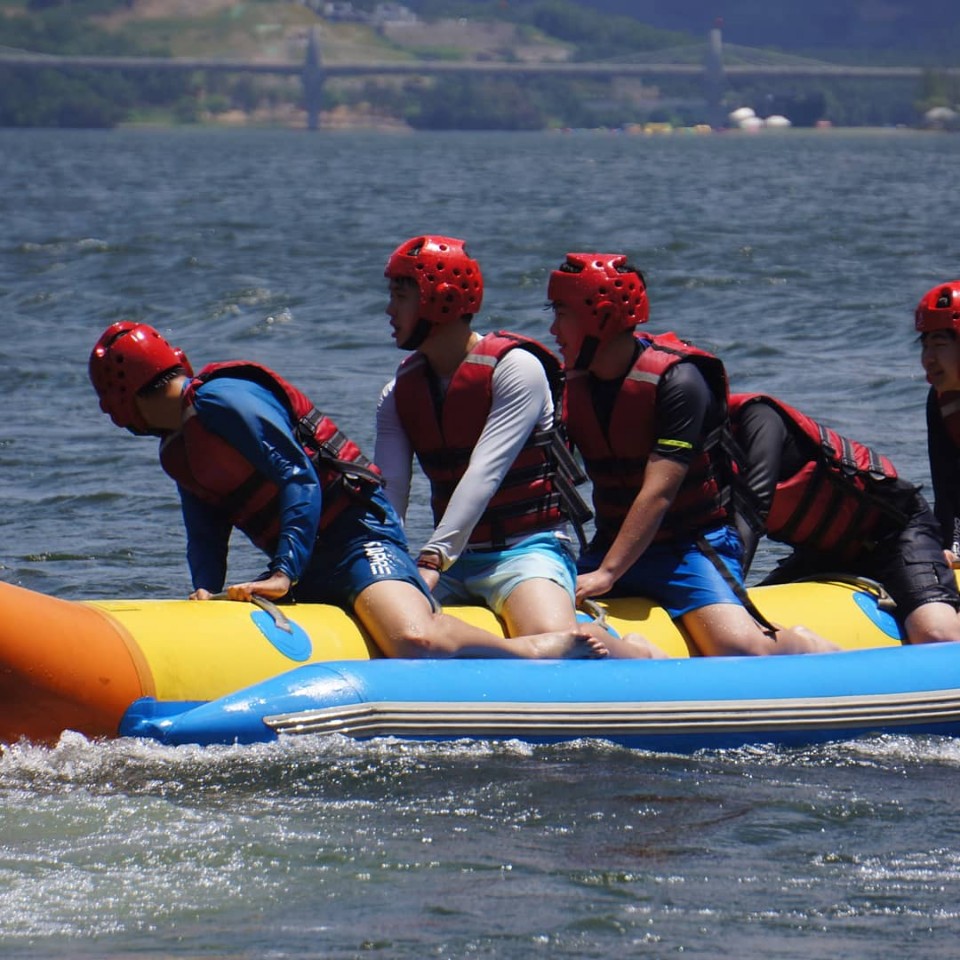
Photos provided by Joshua.
QUESTION
What ways have you been able to overcome the situation of new health restrictions and find time for leisure and enjoyment during the pandemic?


The Bigger Picture
South Korea, an East Asian country with a population of over 51 million people, had its first confirmed case of COVID-19 on January 20th, part of an outbreak at a church in Daegu, the third largest city. By early March, South Korea experienced a peak in case numbers, at that time second in the world only to China. The Korean government acted quickly and effectively, implementing comprehensive contact tracing and mask rationing. Leaders in Seoul made a concerted effort to slow the spread of the disease under a clear and transparent national initiative. South Korea was able to quickly reduce case rates, likely due in part to their preparedness; every 5 years, South Korea updates its national infectious disease plan to ensure the country has adequate structures and resources in place to respond to any outbreaks. Although South Korea did see a second rise in cases between August and early September - the number of daily infections peaked at 441 new cases - the daily number of new cases was back down to 47 on October 16th.
QUESTION
How does South Korea’s response to COVID-19 compare or contrast to your home country’s response?
Francisco
AGE:
18
LOCATION:
Newark, New Jersey, USA
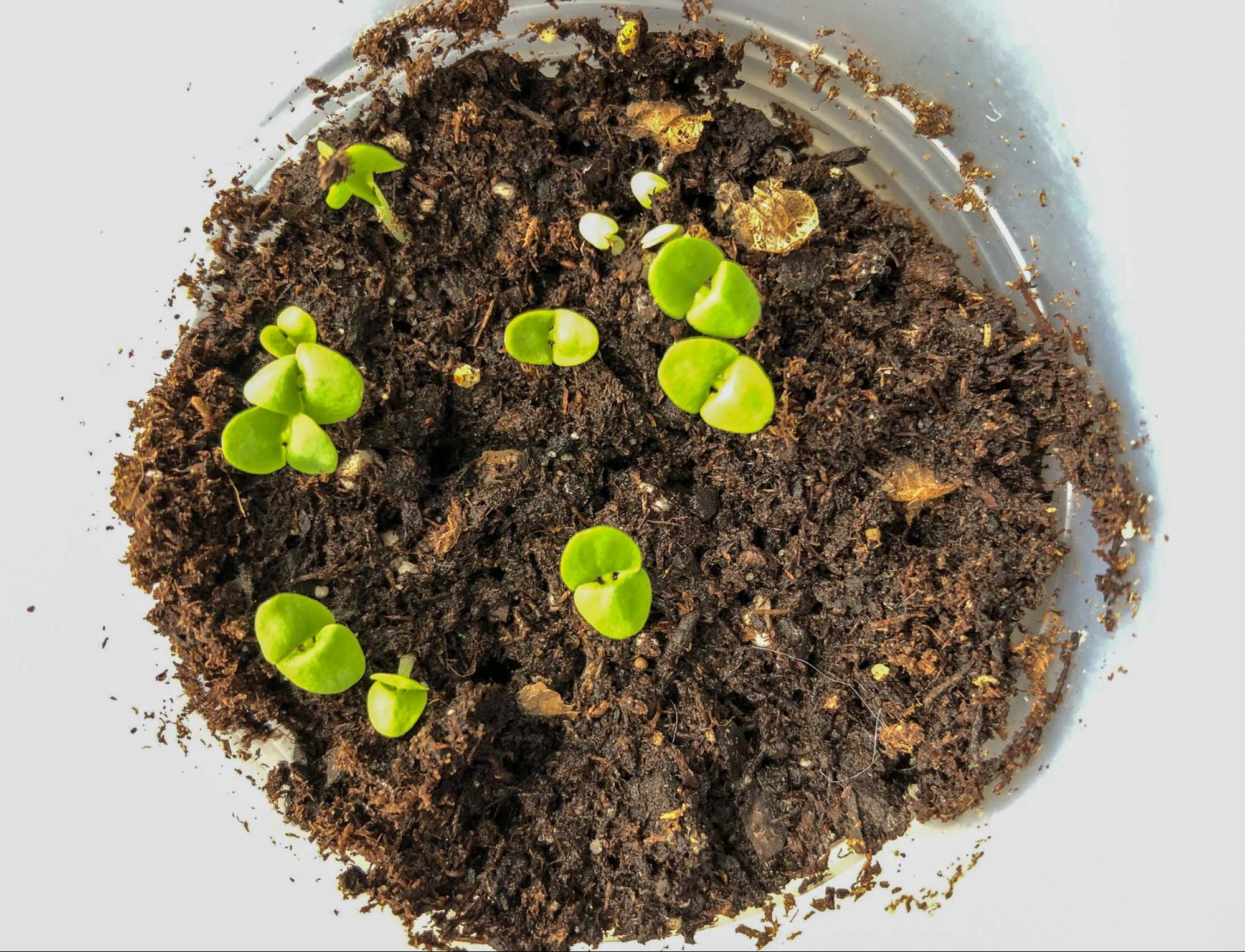
Photo provided by Francisco, Stories from the Pandemic (https://www.storiesfromthepandemic.com/).
Some of the photos I have captured for this week play with themes of hope. It’s important to have hope because there will be a day when this will end and where we will be able to see our loved ones and appreciate what we have. Quarantine began over a month ago and we’ve adapted to the circumstances brought by the Coronavirus. At my home we’ve created new routines to pass the time. For example, after completing my school work for the day, I usually walk my dog Bo in my enclosed backyard which gives us both fresh air. I also take time out of my day to work on my fielding with a tennis ball and glove. Baseball is a sport I enjoy and want to get better at. I hope to play for my university and beyond.
When I’m completely free, I like to relax by playing video games either on my phone or PS4 with a few friends. So I think at this point in the quarantine, it’s not so important to think about what has changed or what we can’t do, because in reality we have already adapted as best as we can. I think we should focus instead on having hope.
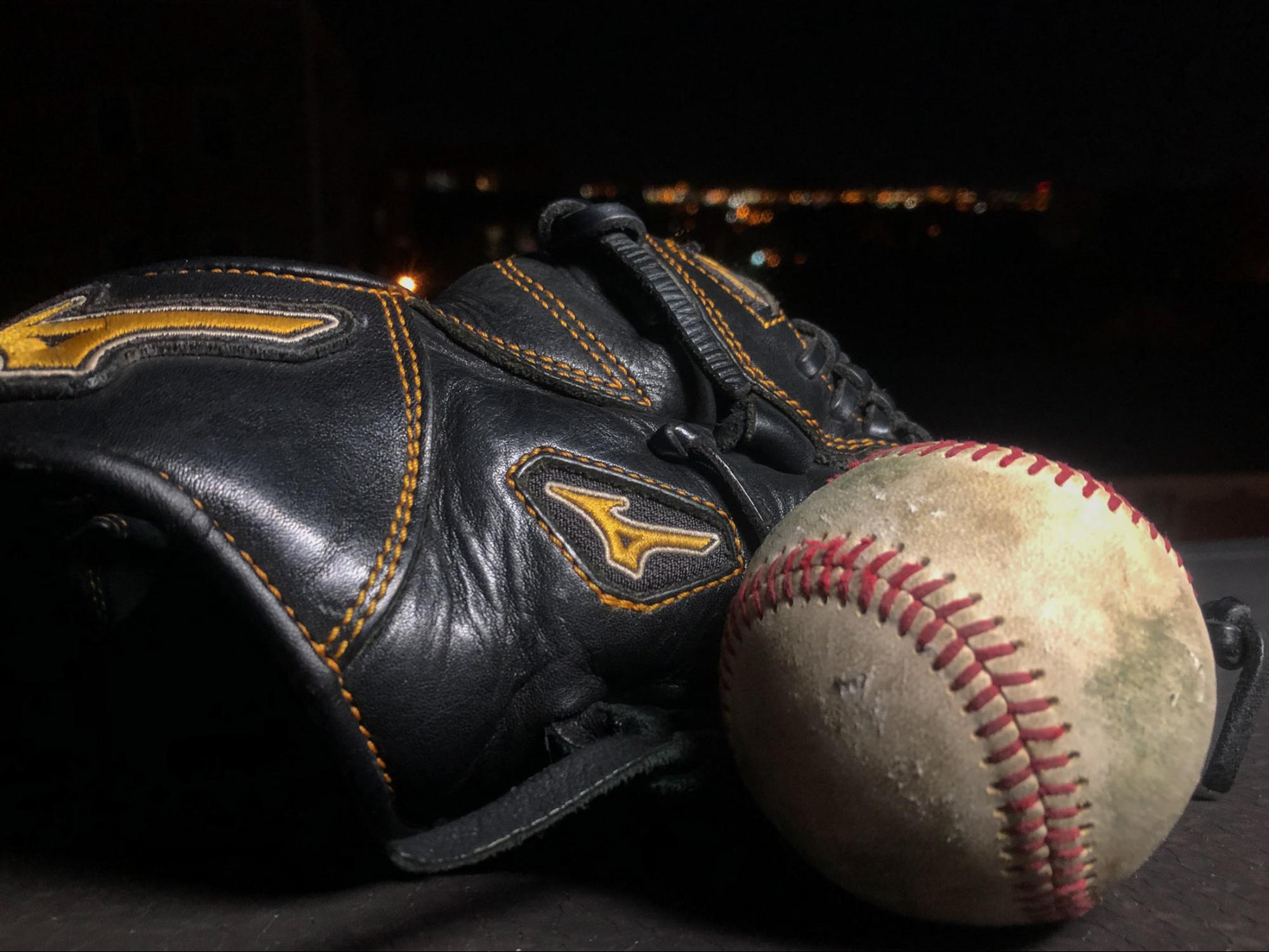
Photo provided by Francisco, Stories from the Pandemic (https://www.storiesfromthepandemic.com/).
QUESTION
How would you capture hope in a photo?
Neeve
AGE:
20
LOCATION:
Paris, France
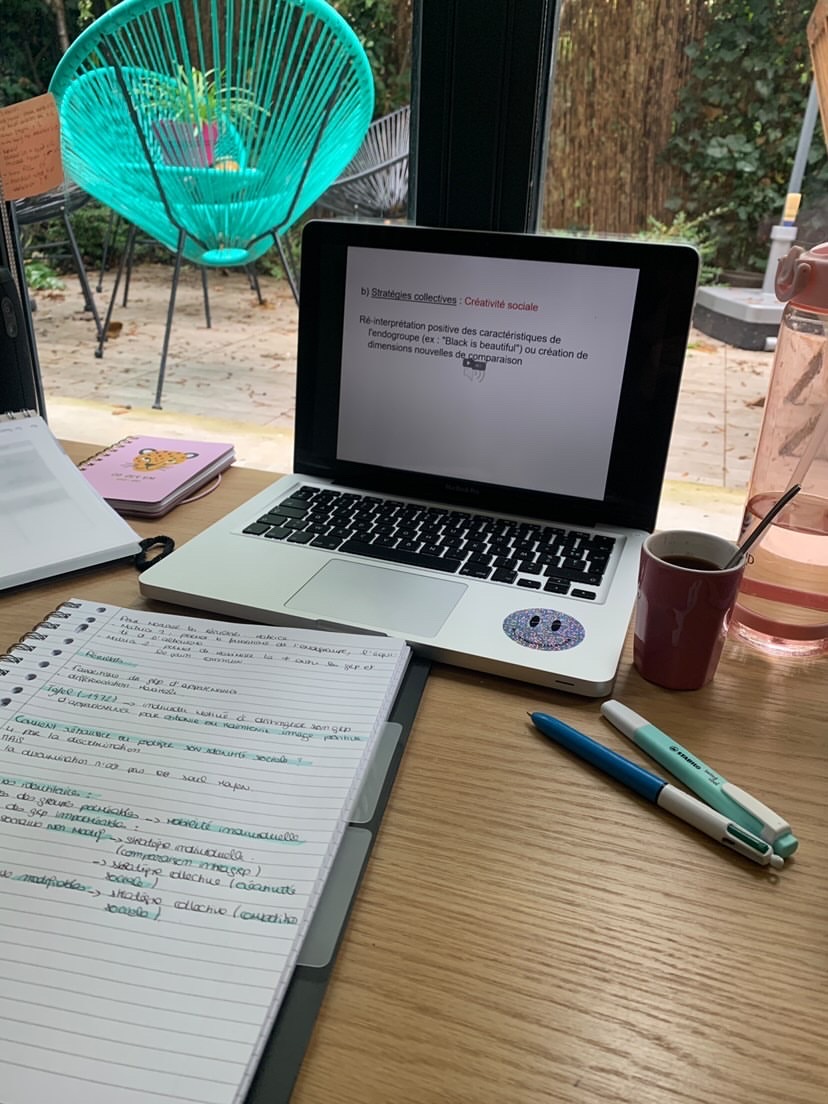
Photos provided by Neeve.
Hi My name is Neeve, I live in Paris and I’m 20. Life has been totally different for me since Covid 19 became a major problem. I actually appreciated quarantine because I took time for myself, my studies, and my family. But now that we are not further in quarantine I realize that this virus has changed everything including our way of life, our social life, our studies. I don’t see my friends as much as before, I stopped meeting new people because I’m not going to parties or bars anymore. This new situation is kind of sad and I hope that it will get better. Furthermore, I only go to college every two weeks, which I find boring. I prefer waking up in the morning and getting ready to go instead of staying all day long at home. I’m also scared for the future of young people like me. Will we be able to find a job? How will all this evolve?
QUESTION
As a young person, what worries do you have now that you did not have before the pandemic? Do you think the pandemic will make it more difficult for you to get a job?


The Bigger Picture
Switching to optional online education in many French universities not only restricted opportunities for students to socialize, forcing them into a lonelier reality, but it also decreased the quality of students’ education. Although students attend classes virtually and can finish the semester and graduate, they are unable to ask questions of their professors or to participate in debates during class - crucial parts of higher education. Most student exchange programs were either put on hold or cancelled outright. And in many cases around the world, apprenticeships and internships, often required as a part of a university degree, have been cancelled indefinitely. Students are second-guessing their chosen fields, and some are shifting to more mainstream areas to find better job opportunities, inadvertently creating a bottleneck. The French university system is only able to award scholarships and grants to one third of university students; the remaining two thirds must rely on their families or jobs. The government’s released pandemic aid draft plan had a special focus on youth, with €1.6 billion allocated for youth training programs and €1.3 billion for employment support programs such as the Youth Guarantee. Nevertheless, the labour ministry anticipates youth unemployment to hit 30% due to the pandemic.
QUESTION
What ways have you created financial opportunities to fund your schooling?
Daisy
AGE:
17
LOCATION:
Dennison, Minnesota, USA
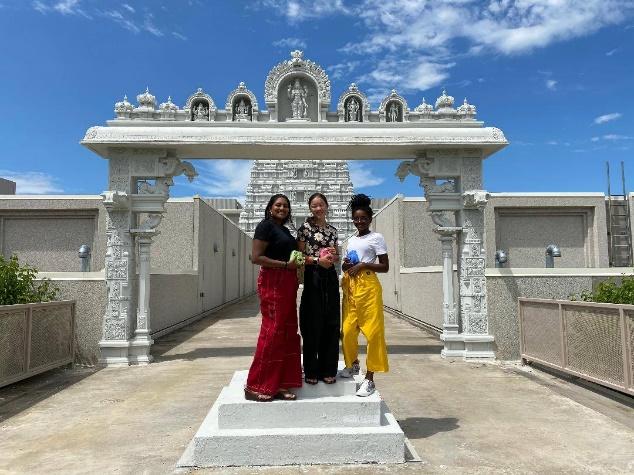
Sunny (left), Daisy (center), Coco (right). Photos provided by Daisy.
My sisters and I were adopted from different parts of the world. I was born in China, and my younger sister Coco from India, and my youngest sister Sunny from Ethiopia. My family’s values are ingrained with diversity, global awareness, and connection. My parents wanted us to grow up as “global citizens,” and for the past five years we spent time with a different religious group to better understand their values, beliefs, histories, and traditions. Not to judge or to join, but to expand our perspectives and find our commonality as humans. Then, four years ago, my sisters and I started doing book clubs with girls in Togo, America, India, Afghanistan. Through translators, shipments of books, fundraising, Facebook discussions, and Zoom meetings, we worked to empower, give voice, and connect young girls. Last summer we created a non-profit out of it- Dynamic Champions of Sisterhood (DCS).
It was safe to say that I was truly global. I worked hard to be a feminist and bring my fellow international sisters along with me in pursuit of empowerment. I had compassion for the tough circumstances these girls went through, and I understood their struggles.
But this past summer has changed me as a person. During the summer of quarantine, we had our first ever three-way book club with girls in America, Afghanistan, and India. With quarantine, I had all the time in the world to devote myself to this project. Other than it being a three-way book club, there was one important change with this one. It was that we all were suffering through uncertainty in this global pandemic. It was a great equalizer for all of us. While the girls in Afghanistan have always grown up with the uncertainties of war, I had not. While the girls in the slums of India have always grown up with the uncertainty of their education and future, I had not. I had always tried my best to empower and empathize with them, and honestly, it was easy for me as an American administrator to try. But over this summer, I suddenly realized I could in fact really empathize with them on a whole deeper level. Finally, I utterly understood what it felt like to feel unsafe and uncertain. To not know if a loved one might die of Covid. To worry about my future in college with quarantine. To feel like the world is in a surreal state that has no certain end date. As we talked of politics, climate change, girl’s empowerment, and cultures, my perspective was tinted w zith this newfound vulnerability that we all had, and shared with each other.
This past summer’s experience has helped me realize that while I can easily be the American “Do-Gooder” and empower less fortunate girls, until we’re all vulnerable, true empathy can’t be reached. It is only through our own vulnerability and uncomfortableness that we can truly understand each other and create more effective empowerment and change.
QUESTION
Have you experienced vulnerability and uncertainty for the first time during the pandemic? If yes or no, how has the pandemic impacted your perspective on yourself and the world?


The Bigger Picture
Although the coronavirus pandemic has affected every person around the globe, girls and young women are disproportionately affected more than others. Even though young girls are one of the most at-risk groups during the coronavirus pandemic, they are bravely taking action to help others. Girls have worked to provide health advisory information, hygiene products and medical instruments to their communities and countries. They have also increased their efforts in issues like period poverty and child marriages that have been exacerbated by the pandemic. Fanta and her team members of the Guinea Girl Leaders Club fight gender-based violence while supplying hygiene kits and information to their communities. They also take action against early child marriages, many times directly stepping in to prevent the marriage. An Indian girls' collective, Kishori Samooh, works on fighting misinformation and education of young women in rural areas about the pandemic. Similarly in Nigeria, the young founder of Topak Agro Hub, Tomisin Adefare, raises awareness in Ibadan about handwashing while supplying gloves, face masks and sanitizers. In the summer of 2020, an all-girl robotics team from Afghanistan managed to develop a low-cost, long-lasting and lightweight ventilator, which is $19,300 cheaper to produce than traditional ventilators. The ventilators were approved to be used in Afghan hospitals, and the girls' design was shared with the World Health Organization.
QUESTION
How should women and girls be supported in times of crisis, like the pandemic?
